Budget commits funding to critical needs in

DA seeks death penalty in Otto murder case Page 10



DA seeks death penalty in Otto murder case Page 10

On the Cover:
Ron Rash’s new book, “The Caretaker” is coming on the heels of his 70th birthday. Catch up with the author to get a preview of the harrowing story, as well as his thoughts on his prestigious career and how he honed his craft.
(Page 22) Donated photo
News
Tribal official solicited favors from

Opinion
A
A&E
Outdoors
Amanda Bradley.
Sophia Burleigh.
C LASSIFIEDS: Scott Collier. .
N EWS E DITOR: Kyle Perrotti.
WRITING: Holly Kays.
Hannah McLeod.
Cory Vaillancourt.
Garret K. Woodward.
ACCOUNTING & O FFICE MANAGER: Jamie Cogdill.
D ISTRIBUTION: Scott Collier.
susanna.b@smokymountainnews.com
classads@smokymountainnews.com
holly@smokymountainnews.com
garret@smokymountainnews.com
classads@smokymountainnews.com
C ONTRIBUTING: Jeff Minick (writing), Chris Cox (writing), Don Hendershot (writing), Thomas Crowe (writing)
WAYNESVILLE | 144 Montgomery, Waynesville, NC 28786

P: 828.452.4251 | F: 828.452.3585
SYLVA | 629 West Main Street, Sylva, NC 28779
P: 828.631.4829 | F: 828.631.0789
I NFO & B ILLING | P.O. Box 629, Waynesville, NC 28786
Copyright 2023 by The Smoky Mountain News.™ Advertising copyright 2023 by The Smoky Mountain News.™ All rights reserved. Reproduction in whole or in part without permission is prohibited. The Smoky Mountain News is available for free in Haywood, Jackson, Macon, Swain and parts of Buncombe counties. Limit one copy per person. Additional copies may be purchased for $1, payable at the Smoky Mountain News office in advance. No person may, without prior written permission of The Smoky Mountain News, take more than one copy of each issue.

SUBSCRIPTION: 1 YEAR $80 | 6 MONTHS $55 | 3 MONTHS $35





 written by Ingles Dietitian Leah McGrath
written by Ingles Dietitian Leah McGrath



Question: One of my friends recommended taking magnesium supplements for insomnia. What do you think?




Answer:




Bottom Line:

The Cherokee Tribal Council is considering taking formal action against a former representative who is accused of using his position to secure money and personal favors from a vendor guiding the tribe’s fledgling cannabis enterprise.
Jeremy Wilson was an outspoken advocate for the economic development potential cannabis offered when he represented Wolfetown on Tribal Council 2017-2019, and he continued his involvement in the effort after losing his re-election bid. Principal Chief Richard Sneed appointed Wilson as tribal governmental affairs liaison, and he also sat on the board for Cherokee Medical LLC, which later became Qualla Enterprises LLC.
According to an investigation the Office of Internal Audit and Ethics released Aug. 3, during this time, Wilson violated codified standards of ethical conduct by soliciting gratuities and favors from Sovereign Solutions Carolina, with which Qualla Enterprises later contracted for professional services to bring its ambitious plans to fruition.
But Wilson maintains that no such favors were exchanged.
“There were never promises made, there were never favors done on either side of the fence,” Wilson said in an interview. “There just — there wasn’t.”
The investigation, spurred by a confidential complaint received Jan. 25, 2023, relies largely on text messages Wilson sent to the principal of Sovereign Solutions and to a company “associate,” neither of whom is named in the report.
Public records show that Sovereign Solutions filed articles of organization to be recognized as a North Carolina business on Dec. 1, 2021, but that it was administratively dissolved on May 26, 2023, after failing to file the required annual reports. In the meantime, Sovereign Solutions had filed to register as a business in Oregon, where it has maintained active registration since June 13, 2022.
According to the investigation findings, Sovereign Solutions submitted its proposal to manage and consult with Kituwah LLC, the tribe’s business arm, on its cannabis initiative on Nov. 8, 2021. Eleven days later, Wilson sent a text message to an unnamed Sovereign Solutions associate asking for donations to a GoFundMe campaign he’d organized to fund Thanksgiving food boxes for families in need. According to the fundraiser page, this was Wilson’s fourth annual Thanksgiving Box Event and would provide 50 families with a food box.
Donations would be used to supply each box with a $25 gift card, which families could use to buy a turkey.
The fundraiser brought in six donations totaling $1,200. Searches for the names listed turn up articles about people working in the cannabis industry.
On March 3, 2022, Wilson was appointed to the Cherokee Medical LLC board, and a month later a formal term sheet was executed between Sovereign Solutions and the cannabis business, which had been renamed Qualla Enterprises. However, the formal management agreement between the two companies was not executed until June 16, 2022, three days after SSC completed its Oregon registration. In the interim, the Office of Internal Audit and Ethics found, Wilson sent several messages to people working with Sovereign Solutions that appeared to seek funding and favors.
The first message, sent on May 12, 2022, went to the company’s principal and said, “Safe travels home bro. Thanks again for the help. Got some debt paid down. Much appreciated.” A separate message sent the same day said, “Means a lot man. Been pretty tough lately. Just know you’ll get your money’s worth out of me. See you in Vegas.”
A week later, on May 20, Wilson sent a message to an associate of Sovereign Solutions that said he and his then-fiancé had just landed in Vegas.
“Looking forward to catching up again,” the message read. “On a side note, do you know anyone who has the hookup to Bruno Mars tickets this weekend? If not that’s fine.”
A couple weeks later, Wilson was once more texting Sovereign Solutions’ principal.
“Hey bro. Hate to ask again, but just need to know if the financial assistance is still in play?” read a June 4, 2022, message, followed by “Also, I really don’t mind paying you back through profits made from working with your team down the road. I don’t use people. Just in need of help. It’s now effecting [sic] my relationship.”
The investigation report does not include the replies Wilson received to these inquiries, but it appears there was an ongoing conversation between the parties.
“Will we get a chance to discuss this financial thing and [my fiancee’s] opportunity at some point?” reads a June 15 message
to Sovereign Solutions’ principal.
“That’s good, sorry I keep asking on the financial stuff,” reads a separate message sent the same day. “I really am in a tough spot, and just wanting some peace of mind.”
According to the report, Wilson had expected to be hired as general manager of Qualla Enterprises, a position that is now held by Forrest Parker. Anticipating this opportunity, he resigned from the LLC’s board of directors on June 24, 2022, and on July 15, 2022, texted Sovereign Solutions’ principal with his banking information.
But Wilson never got the job. On Aug. 2, 2022, Sovereign Solutions Carolina asked for a meeting with Sneed and two Tribal Council representatives — Yellowhill Rep. T.W. Saunooke and Vice Chairman Albert Rose — both of whom also served on the Qualla Enterprises board, to “discuss concerns about the respondent’s conduct,” the report reads. The next day, Sneed fired Wilson from his position as governmental affairs liaison.
Wilson doesn’t deny that he sent the text messages in question but said, despite what it appears based on the excerpts in the report, no favors were exchanged.
“The biggest mistake that I made was putting my trust into somebody that I saw as a good, good friend,” he said.
Wilson said he met the principal of Sovereign Solutions at a conference in 2019, well before the Eastern Band of Cherokee Indians had entered the cannabis market, and came to see him as a mentor for success in that business. He became a “great contact” to learn how the industry works, but over time the two men became “good friends.”
“In the early part of 2022, I unexpectedly fell on some hard times,” Wilson said. “It was a very low point in my life. I really, basically, didn’t know who to talk to at the time.”
So he talked to his professional mentor and friend.
According to the report, the man said he’d given Wilson $4,000 in cash, but Wilson maintained that no money was exchanged. His friend gave him advice and moral support, he said.
Wilson said he believes that the investigation occurred in “retaliation” for concerns
that he began expressing about Sovereign Solutions’ job performance.
“The [request for proposals] was not being executed as promised, which began to show some concern for us as board members and for leadership that eventually began to question, was this group the right fit?” Wilson said.
Debate about job performance and accountability at Qualla Enterprises has been a frequent topic of discussion in Tribal Council chambers over the past year. Sneed, a supporter of early efforts to venture into the medical cannabis industry, has become one of Qualla Enterprises’ most vocal critics, calling out alleged cost overruns and transparency concerns. In June, he presented Tribal Council with a resolution requesting a forensic audit of the company, but the legislation was tabled and ultimately withdrawn this month as the end of the legislative calendar approached. The majority of Council has been supportive of Qualla Enterprises, saying the company has been transparent and accountable in its business practices and has the potential to generate massive profits in the future.

In discussing the investigation, Wilson pointed out that the complainant is confidential and that none of the replies to the text messages he sent appear on the report. If the principal of Sovereign Solutions did in fact give him $4,000, Wilson said, why is Sovereign Solutions still working in Cherokee?
“If they are stating that they did X, Y and Z, why am I the only one that’s being accounted for?” he said.
The Office of Internal Audit and Ethics didn’t start looking into the complaint until eight months after Wilson was fired. Due to “other administrative and investigative processes,” the complaint filed in January was deferred and not assigned to a staff member until April 26. On June 2, the Ethics Review Committee approved ethics staff proceeding with the investigation and interviews were conducted with Wilson and “Witness 1.”
The investigation concluded that Wilson had committed four violations of the tribe’s code of ethics: a tribal official or member of their immediate family soliciting anything of monetary value from contractors, potential contractors or subcontractors of the tribe or one of its programs; failing to act in accordance with tribal law and engaging in proper governance of the tribe in a manner that is placed above personal gain; using the prestige of the office to advance personal interests; and failing to maintain or enhance the honesty and integrity of his office and safeguard the tribe’s reputation.
“Mr. Wilson’s actions were detrimental to the integrity and reputation of the EBCI,” the report states.
The report also noted that Wilson’s texts “appear to indicate he will give the vendors favorable treatment and work for their interest when he is soliciting money and favors from them.” Promises that the contractor would “get their money’s worth out of me” and that Wilson would pay back money from future profits working together “show that Mr.
Wilson’s relationship with these contractors went far beyond the boundaries set forward in the Standards of Ethical Conduct given his position on the Cherokee Medical LLC board and appointment as Governmental Affairs Liaison,” the report states.
The Audit and Ethics Committee issued Wilson a $4,000 fine and recommended that he not be appointed to any position within the tribe for five years. Now, Tribal Council is considering a formal adoption of those sanctions. A resolution on the Sept. 7 agenda, submitted by Tribal Council, would have accepted and adopted the ethics investigation report, including the $4,000 fine, an amount “which shall be a debt to the Tribe for which Mr. Wilson’s per capita may be garnished.”
Further, the resolution would prevent Wilson from being appointed to any position within the tribe or any of its entities, enterprises, boards or commissions, or from entering into a contract to provide goods or services for the tribe or any of its entities, enterprises, boards or commissions, for multiple years. The specific number of years this ban would remain in place was left blank on the submitted resolution.
Tribal Council did not discuss the resolution Sept. 7. It was read into the record, followed by a unanimous vote to table it. The resolution reappeared on the agenda for Sept. 25, which was a special session to
debate any pending legislation prior to the end of the legislative calendar on Sept. 30. After that date, any legislation that has not been acted upon automatically dies.
In a narrow vote, Tribal Council decided to withdraw it — but not to forget it.
“It was my understanding that Tribal Council wanted to have a work session or discussion about it, and that hasn’t happened,” said Attorney General Mike McConnell in recommending that Council withdraw the resolution. “It’s the end of the legislative year. That’s the reason.”
The resolution could be resubmitted at a later date, McConnell said.
McConnell met resistance from Vice Chair Albert Rose, Wilson’s erstwhile colleague on the Qualla Enterprises board. Rose said he wasn’t aware of anyone wanting a work session and that he’d met with representatives from Wilson’s home community of Wolfetown, who had come up with a number to put in the blanks on the resolutions.
“I don’t know what has changed since then,” he said. “I know there’s some other things that probably need to be added to this that’s not mentioned in here.”
However, the majority of Council supported a move from Wolfetown Rep. Mike Parker to withdraw the resolution — though with the express intention of reconsidering it after the new Council is seated in October.
Rose, Wolfetown Rep. Andrew Oocumma and Painttown Rep. Dike Sneed opposed the move to withdraw. Joining Parker in favor of withdrawing were Yellowhill Rep. David Wolfe, Chairman Richard French, Painttown Rep. Michael Stamper and Snowbird/Cherokee County Rep. Adam Wachacha. Four members were absent.
Representative for Qualla Enterprises and Sovereign Solutions did not return a request for comment.



Starlight Night, the annual fundraiser for Full Spectrum Farms, will take place 5-8 p.m. Saturday, Oct. 7, on the farm.
There will be music, BBQ, kids’ theater, hayrides, silent auction, raffles and games. Advanced tickets for Starlight Night are available by making a $25 donation for a single ticket or a $50 donation for a family. Tickets will also be available at the gate.

Full Spectrum Farms is a non-profit organization in Cullowhee that serves people with Autism Spectrum Disorder by providing a farm community. Founded in 2002 by parents of children with ASD, Full Spectrum Farms is a 34 acre farm where individuals with ASD can live, work and explore in a safe and encouraging environment. Through free weekly programs such as woodworking, pottery, weaving, adaptive horticulture, exercise and wellness, summer camps and arts and crafts, clients gain life and social skills to help achieve their personal goals.
The Starlight Night fundraiser serves as the organization’s main source of income. Volunteers are still needed and can sign up to help at tinyurl.com/mrx74v4a.
For more information about Full Spectrum Farms, or to purchase tickets for Starlight Night, visit fullspectrumfarms.org, find the farm on Facebook, call 828.293.2521 or email erin@fullspectrumfarms.org.

“The biggest mistake that I made was putting my trust into somebody that I saw as a good, good friend”
— Jeremy Wilson
This year’s state budget process may have been one of the most discordant in recent memory, but Western North Carolina’s legislative delegation was able to secure record-setting funding for critical needs in a relatively poor region that sometimes feels overlooked when Raleigh gets to dishing out the dough.
“The last budget was the best budget in anyone’s memory and this one was even better,” said Sen. Kevin Corbin (R-Macon). “Big picture, we had a very successful year. We certainly got our share.”
and 11% for state employees (7%), including retirees (4%), bus drivers (9%), highway patrol (11%) and teachers (7.4%). Education advocacy groups say that’s not enough, especially in light existing low pay for teachers. Masters pay, once given as a supplement to teachers with advanced degrees, remains absent from the budget.
Once again, the General Assembly has included a personal income tax rate cut, from 4.75% to 3.99% — another step toward a stated goal of abolishing the tax altogether by 2030. The cut will save a person earning Haywood County’s average per capita income of $31,302 about $238 a year.
move was strongly opposed by the North Carolina Press Association, calling it “unprecedented and unjustified.”
On a regional level, the eight westernmost counties in the state represented by Corbin and Reps. Mike Clampitt (R-Swain), Karl Gillespie (R-Macon) and Mark Pless (RHaywood) will receive substantial funding for a variety of needs.
In analyzing the list of appropriations made to eight western counties, community colleges appear to be near the top of the list, but the legislative delegation’s greatest priority is as clear as a cool mountain stream — sewer and water upgrades, part of a $2 billion statewide push to prepare for growth and bolster conservation by updating crumbling infrastructure.
“There was a lot of water and sewer things in the budget because there’s as a lot of need,” Corbin said, adding that the statewide availability of the $2 billion was only a fraction of the $6 billion in water and sewer requests the General Assembly entertained.
center in Graham County, $1 million to help Clay County build an arena and farmers market and $250,000 for Hayesville Moves, an integrated network of biking, equestrian, hiking, and walking trails.
Local governments in all three counties will receive a total of nearly $2.6 million for water and sewer upgrades in Andrews, Murphy and Robbinsville.
Corbin said that the total appropriations for his 50th Senate District, which contains the 118th, 119th and 120th House districts, are close to $300 million, not including larger projects with multi-year funding. He credits the success to his experience and his close working relationship with the House reps in his district.

Nearly three months late, the budget still hasn’t “passed” — Gov. Roy Cooper won’t sign it, saying it “seriously shortchanges our schools, prioritizes power grabs, keeps shady backroom deals secret and blatantly violates the constitution” — but it will become law without Cooper’s signature after 10 days.
The budget does, however, finally provide for long-awaited Medicaid expansion that will provide more affordable health care to an estimated 600,000 lower-income people across the state. Corbin bucked party leadership for years in support of expansion. It also provides pay raises between 4%
Nearly $400 million will go into workforce development, a critical need especially in the west and especially in light of the state earning CNBC’s “top state for business” designation for the second year in a row. The state also will invest more than $600 million in mental health programs, seen as critical for combating the opioid crisis.
Proposed casino expansion in the state proved to be a stumbling block right up to the last minute, even after Rockingham County Republican Sen. Phil Berger’s backroom arm-twisting failed to sway members of his own caucus. Berger’s attempt to tie casino expansion to Medicaid expansion in an all-or-nothing bill also failed.
Few will ever know the lengths Berger went to working on behalf of the casino development donor who contributed to his 2022 campaign because a provision in the budget threatens the public’s right to the General Assembly’s public records. The
Gillespie secured $11.4 million for Murphy’s TriCounty Community College, an institution he’s been passionate about since taking office in 2020. The money will be used not only to expand TCCC’s cultural and historical education facility, but also to establish a heavy equipment operator program.
Gillespie also secured $10 million for the construction of an indoor firearms training facility at Southwestern Community College’s Macon campus.
“The facility is intended to deliver firearms training with controlled access. It is my understanding that, in addition to Southwestern Community College-PSTC Academies, BLET, NPS-PRLEA, the facility will be available to numerous state agencies,” Gillespie said.
Those agencies could include the highway patrol or SBI, as well as sheriff’s offices from the seven westernmost counties and local police departments in Cherokee, Clay, Graham and Macon counties.
There’s also $3.4 million for the construction of a new seniors/veterans services center in Cherokee County, $2 million towards the construction of a badly needed justice
“Each town’s water and sewer needs are different, but generally, many of the water/sewer requests our office receives are to replace aging infrastructure,” Gillespie said. “One specific example is with the town of Murphy. The mayor indicated to me that the town has been facing major challenges with aging water lines, some of which date back to the late 19th Century. These funds will help the town modernize their downtown water lines, and in turn, help to provide residents with safe and reliable drinking water.”
Appropriations made in Macon County include $400,000 to the town of Franklin for costs associated with the fire substation construction project, another $352,000 for other projects and $5 million to the town of Highlands for the completion of dredging in and general restoration of Mirror Lake.
Like Gillespie, Clampitt scored his one of his biggest appropriations for an educational institution in his district, Sylva’s Southwestern Community College. The funding totals $20 million, for capital improvements including a new business development center, library and indoor firearms training center.

“Expanding services at SCC is very important,” Clampitt said. “Community colleges are an easy reach for individuals to get an education that enhances their skills and results in higher pay.”
Clampitt is also the local legislator responsible for Western Carolina University in Cullowhee, which wasn’t overlooked either. Western will receive $9 million towards a $95 million appropriation to expand the college of engineering and focus on advanced technologies, like robotics.
In anticipation of revenues derived from the state’s legalization of sports betting back in June, the college is also slated to receive $1.2 million.
A retired fire captain, Clampitt made sure to get $800,000 for a new pumper truck for the Cullowhee Volunteer Fire Department.
Funds totaling $6.4 million will go to the renovation and expansion of the Marianna Black Library in Bryson City.
One major disappointment for Clampitt, and others, was that the proposed split of the judicial district included in an earlier version of the budget ended up being stripped out (SEE COURTS, p. 14).
Clampitt did, however, secure funds for two justice-related initiatives, a recurring $242,000 for an additional district court judge and a recurring $4.2 million for a public defender’s office in the 43rd prosecutorial district, which encompasses Cherokee, Clay, Graham, Haywood, Jackson, Macon and Swain counties.
county is expected to pursue an expansion of its solid waste facility, and another $2.3 million for general capital improvements.
Brevard will share $200,000 with Henderson County for the Ecusta Trail, a proposed 19.4-mile rails-to-trails route that will connect the two.
Just edging out Transylvania County’s $56.5 million haul is Pless’ Haywood County, which will see more than $60 million in total inflows.
Chief among them is a single $38 million appropriation so the town of Canton can continue to treat its outflows.
“I shared with the budget chairs that we had a unique situation in Haywood County,” Corbin said, crediting the influence of Sen. Ralph Hise (R-Mitchell), who represents a portion of Haywood County, for helping to make the appropriations possible.
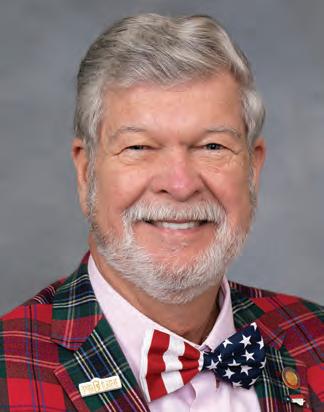
When Pactiv-Evergreen first announced it would shutter its century-old paper mill in Canton this past March, the general public was immediately concerned with the fate of the workers, the economic ripple effects and the future of the site — in that order.
But there’s always been a strong undercurrent of concern among municipal government administrators over the town’s wastewater, which had been treated for free by the mill since at least the early 1960s. A contract in force guarantees Pactiv’s continuing operation of the wastewater treatment plant for two years after any shutdown, and that clock has been ticking for some time.
The town is still without a site, a permit and a whole lot of time to figure things out, but now at least they’ll have the money to change that.
North Carolina taxpayers are coming out of pocket to the tune of $52 million solely due to Pactiv’s decision to pull out of Haywood County.
“This was a sudden impact. This is not unlike a hurricane. The citizens of Haywood County didn’t ask for this. Haywood County government didn’t ask for this. Canton didn’t ask for this. This was imposed on them like a storm, but in this example, somebody caused that storm,” Corbin said. “I have no sympathy
ly flooding more than two years ago. One of the smallest appropriations — but potentially one of the most consequential — will give residents more lead time when it happens again. It’s only $140,000, but the river gauge system on the Pigeon has the potential to save lives and untold millions in property damage.
Haywood County’s long-awaited detention center expansion project has been plagued by all manner of snafu. First, it was minor but vociferous public opposition, then COVID-19, then inflation, right-of-way issues, outlandish bids. Pless procured $5 million to help the project, which has been discussed since he was a Haywood commissioner, get across the finish line.
The final tranche of Haywood appropriations goes to five local nonprofits that serve the most vulnerable members of the community.
Feeding the Multitudes Inc. and The Community Kitchen, both of Canton, are in line for $100,000 each. An estimated 13% of Haywood County residents experience food insecurity.
“We’ve never gotten state funding before,” said Allison Jennings, executive director of the Community Kitchen. “This is new to me, but I can let you know the money will be spent to make sure operations continue, and it will go a long way.”
The public defender funding will establish the office, including a public defender, 14 assistant public defenders and a support staff of seven.
“The district is very large, and we have a grand amount of cases that are constantly ongoing. We have a big need to expedite due process. We’ve had issues in the past having attorneys available to do that work,” Clampitt said, adding that the additional judge should help take some of the burden off the existing judges.
During the last round of legislative redistricting, Clampitt picked up a new county, Transylvania. Judging by his list of appropriations for the local governments there, they are probably happy to have him.
A substantial $10 million allocation will allow the county to pursue — you guessed it — water and sewer infrastructure projects. An additional $13 million will go to Brevard for similar projects. Tiny Rosman, population 708, will also see $10 million to manage its own “liquid assets.”
There’s even another $14 million for water infrastructure of a different sort, the state’s largest trout hatchery, which is in Transylvania County.
Then, there’s $7 million with which the
To give the town a few more years to put its own solution into place, some sort of agreement will be hammered out to ensure the continuing operation of Pactiv’s wastewater treatment facility beyond the contract date.
But now that Canton can get moving on its own project, there’s a possibility that its new treatment facility could actually generate a small amount of revenue for the town.
“It’s always been the idea that it would serve more than just Canton city limits,” said Zeb Smathers, Canton’s mayor.
The town will also receive an additional $4 million to mitigate the impact of the mill’s closing.
Haywood County will get $4 million for the same reason.
Haywood County Schools will get $3 million for the same reason.
Haywood Community College will get $3 million for the same reason.
If that all sounds repetitive, that’s because it is — each of those state budget line items specifically cites the mill’s closing as the reason for the funding. All told,
for Pactiv Evergreen, the way they did it, the last minute-nature of it. The citizens of Haywood County had no time to prepare. Haywood County government had no time to prepare. Canton had no time to prepare. It was terribly unfair.”
Smathers said he was appreciative of the local delegation — Corbin, Hise, and Pless — for their leadership, as well as for the efforts of Berger and House Speaker Tim Moore (R-Cleveland) and the bipartisan support from other Republicans and Democrats in the General Assembly.
Shortly after the mill’s closing was announced, Haywood Community College took the lead as both a coordinating entity and a community resource, establishing scholarships and job training efforts like the new trucking program. Although it’s not mentioned in the budget as directly related to the mill’s closure, there’s an additional $3 million for HCC to renovate and establish a consolidated workforce and industrial training site.
Jennings said their annual budget is $239,000, and that the number of people they’ve served over the past three months has gone up.
The Fines Creek Community Center, Cruso Community Center and the Pigeon Community Multicultural Development Center will each receive $25,000.
Lyn Forney, executive director of the PCMDC, said her board hasn’t yet discussed what to do with the unrestricted funds, because they weren’t expecting any. The PCMDC operates a number of educationrelated after school and summer programs for students in Haywood County.
“Most of the grants are designated to specific things,” said Gregory Wheeler, PCMDC board chair. “It’s very rare that you find an opportunity to use money for general operating expenses and to further the programs. We’re one of the only community centers that has paid staff, and in order to continue the programs, we’ve got to pay our staff. We are grateful these funds came unexpectedly, but we’re most grateful that it’s unrestricted.”
Pless said he’d worked on budget chairs well in advance of making requests.
Shelley White, president of HCC, said the school had been working on raising funds for renovation of the existing regional hi-tech center and that the $3 million was about half the estimated total needed to perform some cosmetic upgrades to the 40-year-old site and deal with HVAC and plumbing issues.
Canton, and the county, are both still dealing with recovery efforts related to dead-
“I think a lot of times people don’t exactly realize what goes on down there in Raleigh,” Pless said. “There’s not an opportunity to just throw your ideas out there. You have to go talk to people.”
Although Pless was successful with most of his asks, he didn’t get the $10 million he — and other western legislators — wanted for a substance abuse treatment center. He said he’d keep pushing for the money, and was hopeful that with Gillespie’s recent promotion to House majority whip, it might come soon.
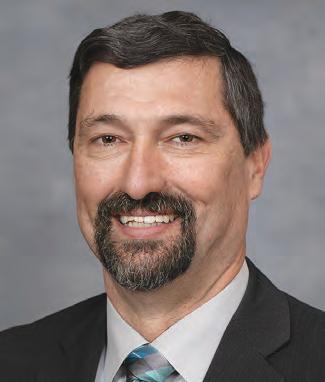
“The last budget was the best budget in anyone’s memory and this one was even better. Big picture, we had a very successful year. We certainly got our share.”
—Sen. Kevin Corbin
 BY HANNAH MCLEOD STAFF WRITER
BY HANNAH MCLEOD STAFF WRITER
The Jackson County Board of Commissioners will likely move to consolidate the Department of Health and the Department of Social Services during its October meeting. Up for debate is how the board to oversee that consolidated department will be structured. On Oct. 3, the public will have its chance to weigh in during a public hearing.
“Currently, we do have a separate health department board who provides oversight for our health department operations and who basically hires and fires the health director and the health director has their statutory duties,” said County Manager Don Adams. “We have a separate DSS board that’s also in charge of hiring the DSS director and the DSS director has those statutory duties for all of their operations themselves. What is being discussed is whether or not this board wishes to move forward with some type of consolidation.”
State law permits county commissions to consolidate agencies and boards in several different ways.
Under the first option, the health department and the Department of Social Services would not be consolidated, and commissioners would make up those boards and appoint the directors of both departments.
In the second option, the health department and the department of social services would be consolidated into one human services agency. The health department board and the social services board would likewise be consolidated. The Board of Commissioners would appoint members to the consolidated board. The county manager would appoint a Consolidated Human Services director with advice and consent from the human services board and that director would appoint someone with health director qualifications.
Option three would also consolidate the health department with the social services department into a consolidated human services agency. Under this option, the board of commissioners would assume the powers and duties of the consolidated human services board. The county manager would appoint a director for the agency with consent of the board of commissioners acting as the consolidated human services board. That director would appoint a person with health director qualifications.
The board also has the option to do none of these things and continue with separate agencies and separate boards.
“In any scenario in which you would take control of the health department board, it requires you to appoint an advisory board,” said Adams. “The advisory board would have similar requirements of the existing health department board.”
Commissioner Mark Jones stated his opposition to consolidation saying he had not yet seen a cost savings benefit to the move. He also described the dire situation of Jackson County DSS, which is currently housing foster children at the DSS building and has to provide 24/7 care to almost 90 children. In June, the county commission approved a payment plan for county employees willing to take shifts working to care for the children housed at DSS.
nificant to a lot of people in our county.”
Commissioner John Stribling also voiced his opposition to consolidation, citing the fact that he had no medical background.
“We’re not cutting anybody’s pay, we’re not removing employees, we’re gaining employees. That’s what we’re hoping to do,” said Commission Chairman Mark Letson. “In order for us to accomplish this goal, we can create a more streamlined effect to that end goal of providing services for everyone. The goal is to expand services so that we can better serve our community.”
Commissioner John Smith, who also voiced support for consolidation, noted that it would allow the county more flexibility with employee salaries.
“I think we need the flexibility with salaries to put people in these positions that we cannot fill,” said Smith. “We’re losing people to other counties that can manipulate their salaries. We’ve lost some to Swain, we’ve lost to Haywood, even private practice because we can’t pay them enough to stay. And DSS, they’re having to stay 24/7 with those kids. That burns you out. And money helps, but we don’t have the personnel that can do that without causing burnout.”
“Some of these options put a lot of power into our hands, and the DSS and health department have such sensitive information, I’m not sure I want to be a part of that structure,” said Jones. “I implore the other commissioners to really think this through because these actions are very sig-
Debate about how to spend revenues from the tribe’s growing portfolio of out-of-state gambling businesses will continue into the next term after Tribal Council voted to withdraw a paired resolution and ordinance addressing the issue Sept. 25.
“The goal is to provide an increased distribution back to the tribe. EBCI Holdings agrees with that. They’re not going to stand in the way,” said Attorney General Mike McConnell in presenting his request to withdraw. “But we don’t want to get to the state regulators and have them say, ‘It looks someone else is really in control here, therefore we’re going to expand the licensing requirement.’”
Board members of the tribe’s commercial gaming business, EBCI Holdings, must go through a rigorous and expensive licensing process. Part of the reason the board was created was to prevent a situation
where Tribal Council members would have to be licensed. The process is too time-consuming and expensive to go through each election cycle, and if one of the representatives could not pass the licensing process, that would create a conflict with the democratic process.
The prudent thing to do, McConnell said, would be to run the proposed language by the state regulators to ensure the changes would not trigger a requirement that Council members be licensed.
Additionally, Tribal Council must agree on what language it wants to go into effect. The two pieces of legislation included an ordinance, which would amend tribal law pertaining to how the revenues are allocated, and a resolution, which would guide EBCI Holdings’ internal operations. However, the two documents gave different instructions as to how money should be allocated.
“We want to have those work together,” McConnell said.
The resolution states that the tribe could choose how it wants to apportion the distributions, rather than using the mandatory percentage allocations in effect now. All revenues would go to the tribe’s Debt Service Sinking Fund “or other fund as the Tribe may request from time to time.”
The ordinance, meanwhile, states half of proceeds from the Sandy’s Racing and Gaming project in Kentucky and Caesars Virginia Casino in Danville, Virginia, would be distributed as per capita payments. The other half would go to the Debt Service Sinking Fund. Under the ordinance, revenues from Caesars Southern Indiana Casino would be distributed according to the policy already in place, with 25% apiece to the Debt Service Sinking Fund and Endowment Fund No. 1, 20% apiece to the Higher Education Endowment and Cherokee Indian Hospital Reserve Account and 10% to the Housing Fund.
Painttown Rep. Michael Stamper agreed to withdraw the resolution to be
Commissioners narrowed their vision down to options two and three, which will be considered during the public hearing to take place at 5:45 p.m. Oct. 3. Under both options, the health department and the department of social services will be consolidated. To be determined is whether the county commission will appoint a board to oversee that consolidated agency, or if it will assume the power of that board itself. As County Manager Adams pointed out, both options require a public health advisory committee.
resubmitted later but questioned why the necessary conversations with state regulators had not been had already, speculating that “somebody’s dragging their feet there.” The change has to happen soon, he said.
“We put a lot of money into these outside projects, and then we don’t really have a whole lot to show for it when it comes back for distribution purposes,” he said.
Snowbird/Cherokee County Rep. Adam Wachacha, the only Council member of those present to vote against the move to withdraw, said that the time has come for entities like EBCI Holdings to start paying the tribe back for its investment. He could agree with withdrawing the ordinance, he said, but not the resolution, wanting to see “some actionable item” go through without delay.
“I know that most of our entities are through the incubator period and establishing themselves to the point that they understand the type of revenue that is going to be coming back to the tribes or to themselves,” he said. “Here in recent times, we’ve watched our entities continue to grow, but we’re almost over here pinching pennies trying to make sure we can fulfill our obligations in the projects we want to continue to lay out in our own communities.”
In a divided decision the Cherokee Tribal Council approved an ordinance amendment that will allow funding for the tribe’s cannabis business to be part of regular budget planning discussions going forward.
The ordinance change, submitted by Legislative Executive Finance Director David Forester for the body’s Sept. 7 meeting, adds a single sentence to existing law spelling out ten uses for which proceeds from tribal levy — akin to a sales tax — can be allocated. The amended ordinance states that “A portion of Tribal Levy revenues as determined in a needs-based budget approach shall be allocated to economic development.”
The economic development endeavor Tribal Council had in mind when adopting the ordinance change was its cannabis business, Qualla Enterprises LLC.

“Part of tribal funds had been used — $31 million — for Qualla Enterprises in the past,” Forester told Tribal Council. “That’s coming from tribal levy. This would allow for more of a structured, scheduled approach to look at that in a needs-based budget approach.”
Qualla Enterprises is not currently allo-

Waynesville’s Pigeon Community Multicultural Development Center celebrated the International Day of Peace last week by installing a peace pole.

cated funding through the regular budget process. Due to federal restrictions, it can’t be funded using the gaming dollars that cover most tribal expenses. The $31 million it has been given so far comes from unused tribal levy funds that then rolled into the tribe’s general fund.
Big Cove Rep. Teresa McCoy, who has been a vocal advocate for Qualla Enterprises, was the first to speak.
“It’s not just gaming that’s going down,” she said. “Hotels are down, campgrounds are down, and I think any time we have a chance to take a dime off a tourist, we ought to take that chance.”

Moving to pass the ordinance, she also commented that she’d like to see Tribal Council revisit a previously introduced ordinance change that sought to increase the room tax on the Qualla Boundary.
However, other representatives weren’t sure the ordinance was ready to pass.
Yellowhill Rep. David Wolfe expressed concern about the amount of money the tribe has put toward various business endeavors without yet having those investments repaid.
“If we’re going to act like a bank, then I think this tribe needs a guarantee that they’re going to get that money back,” he said.
theme was “Actions for Peace,” which recognized individual and collective responsibility to foster peace. That’s why the PCMDC had an altar illustrating the many actions the center is taking to foster peace.
There are now over 200,000 peace poles worldwide, from the North Pole to the Hiroshima Peace Monument to the Egyptian Pyramids. Peace poles have four sides, each with the words “May peace prevail on Earth” in a different language.
“The one that we have has the three ancestral languages of the primary people the center serves, and that’s English, Spanish and Swahili, and the fourth side is Cherokee to acknowledge that this is originally Cherokee land,” said volunteer Mary McGlauflin.

An altar was created for the celebration that featured the different efforts PCMDC has to create peace in the community.

The event began with a musical invocation, after which speakers talked about all the ways in which PCMDC fosters peace in the community, from childcare to programs for seniors to food distribution. The building itself was celebrated as a place to welcome people in a part of the community where not all were always welcome.
Established by the United Nations General Assembly in 1981 as a time to discuss and maintain peace, the day is designated as a 24-hour period of global ceasefire and nonviolence. 2023’s
The event brought in about 35 visitors and lasted under an hour with a minute of silence at noon. McGlauflin said she was thrilled to be part of such a positive event.
“It made me proud that we were able to get so much rich stuff in such a short period,” she said. “This was a true labor of love; it was very enriching for me, and I hope it was for everyone else.”
He moved to withdraw the resolution so a “better approach” could be agreed upon before passage.
“I’m in favor of withdrawing it in order to create a repayment process,” agreed Wolfetown Rep. Mike Parker.
Wolfetown Rep. Andrew Oocumma, who has a background in economic development work, said his constituents are in favor of more local economic development efforts, and that the general language of the proposed ordinance meant Council could avoid allocating money to unwise investments. “Economic development” could mean “pretty much anything,” he said, giving Tribal Council the opportunity to decide where the money would be most effective.
“If we don’t pass this, then we’re just
kind of sitting back a little bit till we can figure out how we’re going to garnish some funds to do economic development here in Cherokee and Snowbird and Cherokee County,” he said. “All these areas have opportunity, but without funds going to economic development — which is exactly what it sounds like, bringing the revenue and the funds right into the tribe here to do things that we have on our wish list that we haven’t been able to do — we’ve got to have something to go into it.”
The measure ultimately passed with only Painttown Reps. Dike Sneed and Michael Stamper, Parker and Wolfe opposed, giving it a weighted vote of 69 in favor and 31 opposed.
• Sunday - Wednesday
11am - 5pm
Bar open until 6pm
• Thursday - Saturday
11am - 8pm
Dinner Menu begins at 5:00 pm

perfect for all walks of life, from families to golf groups to ladies who lunch.We pride ourselves on using fresh ingredients from our gardens and supporting local farmers. The details are priority.


District Attorney Ashley Welch will seek the death penalty in the odd and heinous murder case of Tina Walkingstick Frizsell.
The defendant, Christopher Shields, who has been charged with first-degree murder, appeared in Macon County Superior Court before Judge William Coward on Sept. 25. A request was made during a hearing on Sept. 11 by Shields’ defense attorney, Tony Dalton of Brevard, that his client’s bond be set at $1.2 million. During that hearing, Assistant District Attorney Jim Moore motioned to make the charge capital murder, meaning Shields would be eligible for the death penalty if found guilty.

Frizsell was killed in May of last year. According to probable cause affidavits for several warrants for arrest and search warrants tied to the killing, Macon County deputies were first alerted there may have been a homicide when a relative of Frizsell called the Rabun County, Georgia Sheriff’s Office on May 19. That relative said she had been missing for a while and that he had just heard she’d been murdered at Shields’ house in the Otto community.
The next day, Rabun County received another 911 call from the man, this time saying that a woman was actively “getting away from Chris Shields and his house.” After law enforcement tracked her down, the woman and several Macon County Sheriff’s detectives quickly met at the Otto Fire Department. The woman who met with law enforcement at the Otto Fire Department noted that the body she saw was a female wearing jeans and black flip flops. She also said she saw blood coming from underneath the body.

It was Frizsell.


“[She] told detectives that she was at Chris Shields’ residence in the shed on Wednesday 5/18/22 and that she saw a female’s body lying on the floor inside the shed,” the probable cause affidavit reads, adding that she said Shields was a “violent person” with a bad temper who always carries a gun.

Detectives paid Shields a visit. When they arrived, he and another woman were across the road from his house working on a truck. The deputies introduced themselves and said they were looking for Frizsell, to which Shields replied he’d seen her about a week prior. He recommended they check the Rabun County Jail.
The affidavit says the woman said to detectives that Shields told two other people that they were going to help him bury the victim, whose body they allegedly loaded into the back of his truck. They then drove to a property off nearby Mulberry Road owned by a Bashey
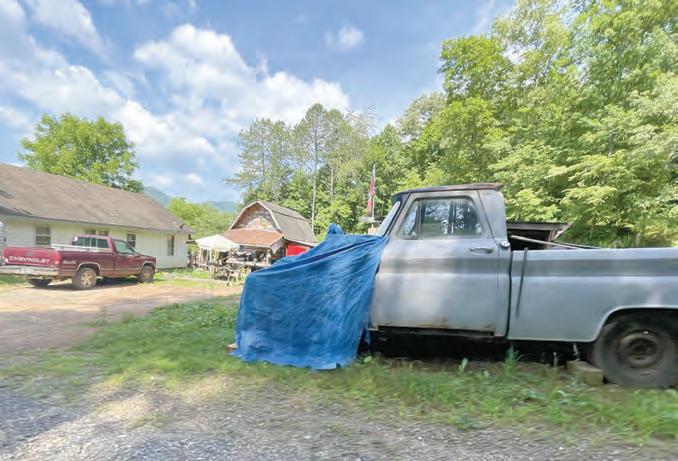
Arizona McCracken that WLOS reported had a “homeless encampment” on it. The woman said that was where Smith and McCrackin were “forced” to help burn the body.
Another search warrant signed and executed June 8 begins with the same narrative but elaborates on how the case developed. It details the strange motive likely behind the homicide, saying that Shields believed the victim had killed his girlfriend and “chopped up the body and scattered her remains across several counties in North Carolina.”
According to a story published in Now Habersham, which covers a broad region in North Georgia, Dalton argued that his client’s bond should be reduced since he has never failed to appear and has immediate family with health concerns that could necessitate his presence. In addition, he said that because Shields has other family in the area, including children, he wouldn’t be a flight risk.


However, Welch noted that Shields has connections in other states and is a flight risk simply based on the severity of his case. The Now Habersham story says Welch stated that Shields has proven an escape risk by picking locks in several cells where he’s been held.


Perhaps most notably, Welch said Shields made a “hit list” where he threatened the lives of witnesses. She even went as far as to say in court that one witness mentioned was Angie Ledford, who was murdered; her decapitated body was found in the Chattahoochee National Forest last month, and the man charged with that murder, Keegan Phillips, is noted in files connected to Walkingstick’s murder to have ties to Shields.

Coward ultimately denied Shields’ bond motion and transferred the felony murder charge to a capital murder charge.




Macon County Commissioners have adopted a master plan for the county’s recreation center and surrounding park. At the center of that plan is the growing sport of pickleball and space for community events, both of which arose from public input.
“We want to put new life into the Macon County rec park,” said Commissioner John Shearl. “I grew up in that park and the idea behind that park is to bring families back together and give them a place to picnic, kayak, play in the river, fish, whatever. That’s the ultimate goal, in my mind, is to give the families a safe place to go.”
The county contracted with McGill and Associates for the master planning process.
“We’ve been working with your public to figure out how best to develop a site master plan for the county park,” said Jim Ford, project planner for McGill. “It’s actually been a really fruitful process.”
Ford worked with the public, developed a master plan and then created graphics for the county park that were then displayed during a set of public meetings in August.

“We’ve gotten public comments all throughout this process,” said Ford. “I wanted to remind everybody how important it is to have a plan moving forward with any sort of great development.”
While commissioners did accept the master plan, this does not obligate the board to carry out any aspects of the park included in the plan. Having a working master plan will help the county if it applies for grants like the Parks and Recreation Trust Fund grant that could supply a substantial portion of funding needed to build out the park.
“This plan does say that you acknowledge the public voice, that we captured that voice through public engagement activities, did due diligence on the property, developed concepts, worked with a recreation advisory board and came up with a concept moving forward that therefore makes you eligible for grant funding in the future,” Ford said. “Without an adopted plan, it’ll be unlikely to get grant funding.”
The park is located in a flood zone, which impacts how the current layout came about and where structures can be built in the future. No walled buildings can be constructed in the floodway.
As part of the planning process McGill conducted a public survey that garnered 347 responses representing 642 individuals.
“We had to ask the public, what do you think of the park now, and what do you visualize the future park consisting of? Since 2020, COVID reminded us all how important it is to be allowed to get outdoors,” said Ford. “People also now crave things like events, concerts, plays, getting together as a family, having those reunions. People are craving this, they have for a few years now.”
Part of the survey asked the public to identify barriers to recreation and the number one response was that the activities peo-
ple wanted are not offered. The second most popular response was that people don’t have enough time to access the recreation park.
“Everybody’s heard about needing to have access to education; well, parks are just as important to a good quality of life,” said Ford.
People were also asked to rate the amenities they would like to see at a future recreation park, the most popular response being an indoor swimming pool. This would allow
include two new pickleball courts.
The final concept for the Macon County Recreation Park involves two alternative designs with a set of amenities that feature in both designs. Those core elements in both designs include a walking path, splash pad, racquet sports complex, playground improvements, reducing the size of the baseball and softball fields because of the new complex at Parker Meadows and transitioning the large field into an open area and event space by
lyze costs and give estimates.
“My crystal ball is cloudy, and really you can’t do justice to what things cost unless you have construction documents, a survey, and actual plans,” said Ford. “We’re looking at a 30,000-foot conceptual level.”
The master plan assumes a 10-year buildout and is broken down into six phases. The first two phases involve the racquet complex, and the third phase would develop the open space for events at the rec park. After
access to the pool year-round, where now the outdoor pool can only be accessed during summer. The second most requested amenity was walking and jogging trails.
“That’s usually number one on every one of the surveys I do,” said Ford. “I’ve done this for 16 years.”
Ford noted that this indicated how much people really wanted the indoor pool access.
Other things people wanted to see in the future park included an outdoor pool, outdoor playground, natural surface walking trails, accessible or inclusive playground, pickleball, picnic areas, fitness trail and open space.
“Pickleball, oh my goodness, pickleball,” said Ford. “You guys are a pickleball community. It is a demographic thing at the moment, but that is changing. This is one of the fastest, if not the fastest growing activities in the country, so no surprise there.”
The Town of Franklin recently modified basketball courts at Memorial Park to
creating a natural amphitheater.
“The main centerpiece is that open amphitheater space,” said Ford.
“I just want to say that a big focus for me personally was, I want to see the Fourth of July back in the park, I want to see that grass area used maybe in summertime for some concerts or some kind of festivals,” said Commissioner Josh Young.
One version of the plan also includes a futsal court, covered pool area and expanded playground. The second alternative includes a fitness par course, shade sail with hammock stands, bocce courts, relocating both the sand volleyball and the playground and creating additional creek access.
“I want to see kids and families utilize the creek,” said Young. “They can float from there to Franklin and we underutilize our natural resources.”
In addition to creating a master plan with a couple design options, the recreation advisory board requested that McGill ana-
that, the fourth phase would build out the playground area. Next would come the indoor pool, the largest and most expensive piece of the puzzle. And the last phase would connect all the pieces together with necessary parking and walking paths.
The total cost estimate for the entire plan is $14.5 million with the pool and playground making up a majority of those costs.
“Inflation is real, everybody knows it,” said Ford. “Prices will change, even if you did it today. It’s a lot of money, but it’s over a long time and it will have a huge impact on your quality of life. You’ll be meeting the requests of the community as per the community input and if you adopt the plan, you’ll be eligible to start applying for grants and start taking those bites out of this pie in the years to come.”
Commissioners adopted the master plan with unanimous approval and voted to put out a request for proposals for phase one of the plan.
Western North Carolina courts are about to get a leg up, but it isn’t all that everyone hoped for.
With the passage of the new budget, the judicial district — known currently as the 30th but soon to be the 43rd — made up of Haywood, Jackson, Swain, Macon, Clay, Graham and Cherokee counties, will get one new judge and a public defender’s office that will employ 15 attorneys specifically assigned to represent indigent criminal defendants.
While many wanted to split the judicial district to ease to overall burden placed on judges who have to travel long distances daily, the measure was scratched from the budget late in the game.
The budget passed the House and Senate last week after plenty of negotiating between Republicans in the two bodies who had vastly different priorities. Once it passed, Gov. Roy Cooper said he would neither sign nor veto the budget but would let it pass into law after his 10-day veto window expires.
Getting a new judge is a crucial step toward ensuring the courts can keep up with the increased caseload that comes with the recent surge in full-time and part-time residents, as well as visitors. It has been 17 years since a new judge was added in the state’s seven westernmost counties.
Adding an additional judge was included in drafts of the last budget but was eventually taken out before it passed, but now it’ll be guaranteed.
Chief District Court Judge Roy Wijewickrama said he believes the caseload taken on by the new judge, who will be chosen by voters during the 2024 election cycle, will alleviate much of the judicial burden that has plagued the area for years and was exacerbated by the court shutdowns early on during the pandemic.
“That additional judge will help a lot right away,” he said.
In addition to whoever is elected in 2024, the judicial district will gain another new judge even sooner, as someone will be appointed to fill the vacancy left after former Judge Kristina Earwood retired on June 1 due to an emerging health concern.
Statute dictates that the local bar — made up of all licensed attorneys in the seven-county district — votes to put forward recommendations to fill the open seat. Those recommendations go to the governor, who appoints the new judge; he is not necessarily bound by any law to select one of the names provided by the bar. While it may seem likely that Cooper, a Democrat, would appoint someone from his own party, that hasn’t always been the case. In 2018, he appointed Peter Knight, a Henderson County Republican, to a district court seat.
At a bar meeting following Earwood’s retirement, the top three vote-getters were
Justin Greene, of Swain County; Vicki Teem, of Graham County; and Andy Bucker, an assistant district attorney out of Sylva. Wijewickrama said he’s under the impression that the new appointment will likely be made within the next month.
Under the new budget, there will also be one public defender to handle cases in all seven counties with an indigent defendant, meaning a defendant without the financial means to hire their own counsel. Many believe this is the most impactful change the judicial district has ever seen, considering the court-appointed list, currently made up of attorneys with private practices who take on indigent criminal defendants, has dwindled in recent years.
In an interview earlier this year, Haywood County Clerk of Superior Court Hunter Plemmons said having a public defender’s office will alleviate his office’s workload since his criminal court clerks are currently tasked with assigning criminal cases to attorneys on the courtappointed list, which sometimes requires calling several folks. But with a public defender, they won’t have to do that anymore. Beyond that, Plemmons said he believes it’s necessary to alleviate the burden in Western North Carolina. Some cases are delayed because the defense attorney has work in another county that prevents them from getting to a hearing. Plemmons said that wouldn’t happen as much.
“I think that a public defender’s office is extremely needed in Haywood and Jackson considering the shortages of attorneys, and I see how overworked the ones we have are. It would provide better access to justice for the defendants,” he said.
In a December 2021 letter from the Committee on Indigent Appointments for the Superior Court Judicial District 30B — made up of Superior Court Judge Bradley B. Letts, Wijewickrama and other stakeholders
— to Indigent Defense Services Executive Director Mary Pollard, the group noted that things were getting worse. At the time that
letter was written, there were no attorneys on the court-appointed list for high-level felonies in Haywood. Attorneys on that list are typically the only way to ensure adequate representation for indigent defendants who can’t afford an attorney.
On March 7 of last year, Letts wrote a letter to Pollard formally requesting a public defender’s office. In that letter, Letts references a February bar meeting, writing that a consensus was reached among attorneys present calling for a public defender’s office.
“Our local bar has made numerous efforts and, without exception, valiantly done all which could be reasonably asked of them to assist … Haywood and Jackson counties continue to lack sufficient attorneys on
Mary Pollard, executive director for the state’s Indigent Defense Services Office, said she’s confident that Letts, a Democrat, and Coward, a Republican, will work together well to accomplish that task.
“Both of these judges want to select somebody who will build a great office and be very competent,” she said. “They’re both going to go about making their decision in a deliberative manner.”
Public defenders have a dedicated staff that roughly mirrors the district attorney’s. In this case, the approved budget includes one chief public defender, 14 assistant public defenders and seven administrative staff.
Sometimes, the public defender’s office will have a conflict of interest with certain
the court-appointed lists and in turn regularly encounter barriers in maintaining a timely and efficient system for providing sufficient and effective legal representation and related services to indigent defendants,” the letter reads.
To select a public defender, first, the bar will convene and nominate two or three individuals. Next, the Administrative Office of the Courts will come up with a nomination. Once those nominations are made, the Senior Resident Superior Court Judge makes an appointment. However, because the superior court district is split, that means Bradley Letts, the Senior Resident Superior Court Judge over Haywood and Jackson counties, and William Coward, the Senior Resident Superior Court Judge over Macon, Swain, Graham, Clay and Cherokee counties, will have to work together to appoint someone.

The office will likely end up in the county where the public defender resides, similar to how District Attorney Ashley Hornsby Welch has her office in her home county of Macon.
Western North Carolina courts will get some of the help they need through the recently passed state budget. File photo
defendants. In those instances, the cases will be assigned to another defense attorney not employed by that office, meaning the few attorneys who currently take on clients by being on the court-appointed list should still have plenty of work.
Pollard, who for years has advocated for a public defender’s office in the far-western counties, said the position won’t be officially created until the budget is certified, which may take a few months, but she added that the bar, AOC and the judges can begin identifying candidates before that happens. It’s possible that the office could open and begin staffing up by the new year. While it may take a while to fill all the assistant public defender slots, Pollard said once the office starts taking on a case load, the system should be more efficient.
“The new lawyers doing the work won’t be suffering under crushing caseloads. They’ll dedicate the time they need to representing clients,” she said. “Cases will move faster, and they won’t be held up because lawyers don’t have F
the time they need to do the work they need to do.”
One item that appeared in earlier drafts of the proposed Senate budget that didn’t make the final cut would have split the district court judicial district to mirror the superior court district.



Sen. Kevin Corbin (R-Macon) said he worked with Sen. Ralph Hise (RMitchell) and Sen. Danny Britt (RRobeson) to get that item, along with the extra judge and the public defender’s office, into the budget.

There has been talk of splitting the district for decades now. However, in the wake of the coronavirus pandemic and the backlog of cases court shutdowns created, those calls intensified. Rep. Mike Clampitt (R-Swain) introduced a bill in April 2021 that would have split the district, but it died in committee.
Such was the ultimate fate for this attempt.
Despite the effort in the Senate, Corbin said the split was ultimately stricken during conference — the time during which the House and Senate negotiate specific line items — because House Speaker Tim Moore expressed that he didn’t want to even consider splitting any districts at this time.
Rep. Mark Pless (R-Haywood) said that was his doing — or undoing, as it were. Typically, if all senators and representatives in the area that will be affected by legislation or a budget item aren’t unified in their support, that item won’t make it to a vote. Pless said he hadn’t heard a good case to split the district and he hadn’t talked to any judges directly about the issue, so he made it known he wasn’t in favor of the split.
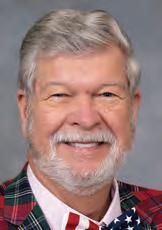
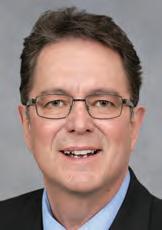
However, there is evidence that the judges in the judicial district all favored a split. In early 2021, a meeting attended by


all judges, some legislators and District Attorney Welch was held; Pless said he was unable to attend due to a work obligation. While neither the judges nor Welch have discussed on the record what was talked about, the legislators provided some details in interviews with The Smoky Mountain News last year.
“[The judges] expressed to us the fact that they’re overworked,” Corbin said.





“I got the impression that judges all wanted the district split,” Rep. Karl Gillespie (R-Macon) said.
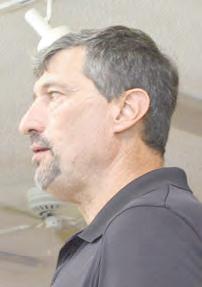

There are two main arguments people make in favor of the split. First, because Haywood and Jackson counties have a greater number of voters, most elected judges are likely to come from those counties, thus creating unequal representation on the bench. With fewer judges out west, that puts more of the administrative burden — including signing search warrants at odd hours — on a smaller number of judges; there’s currently only one judge, Tessa Sellers of Clay County, west of Haywood County. Second, judges may have to drive long distances — for example, two hours from Waynesville to Murphy — on a daily basis throughout a session.
While Welch has declined to comment on her stance regarding the potential district split, and didn’t even respond to an interview request for this story, some have said that she isn’t in favor due to the fact that splitting the judicial district could possibly lead to splitting the prosecutorial district, giving her fewer counties. To that end, in an interview last year, Clampitt claimed that during his push in 2021, he’d promised her that splitting the judicial district would not lead to splitting her prosecutorial district. While other legislators have said Welch didn’t express an opinion one way or the other, Pless said she told him she didn’t want the district split because she felt it wasn’t necessary.
“I talked to Ashely whenever it came out in the budget,” he said. “I called her to ask her what the deal was, because she’s the one in courtrooms, and she deals with these folks all the time … I asked her if this was something she needed us to do, and she said no that it was not something she needed us to do. I asked her if she supported it, and she said, ‘no I don’t.’”
Clampitt said he was disappointed yet again to see the district wasn’t split this goround.


“It’s a crapshoot,” he said. “You never know what will happen. You’re dealing with 170 individuals, and they all have their own interests.”
However, Clampitt was elated the see the addition of a judge and a public defender’s office. Corbin and Pless, despite their disagreement regarding the district split, both said the same thing.
“I’m thrilled we have [the new judge and public defender’s office],” Corbin said. “It’s a (combined) $4 million recurring benefit for our district that will provide good jobs but also a more efficient court system, and that was my goal heading into the budget talks. So whether the district was split or not, that was my main concern, and I’m happy with it.”

Plott hound enthusiasts and their pups from across the United States will assemble to compete in bear bay and coon treeing contests, as well as a sanctioned UKC bench show as part of Plott-tober Fest in Canton from Oct. 5-8.

Sponsored by the Haywood County Historical & Genealogical Society, in partnership with the Canton Historical Museum and the Town of Canton, Plott-tober Fest is a four-day festival celebrating the Plott hound, North Carolina’s state dog, and the rich German heritage of Haywood County.
The festival events surrounding the Plott hound will be held at Canton’s Sorrells Park beginning Saturday morning at 9 a.m. with dog registration, and kick off at 9:30 a.m. with bear bay and coon treeing trials. A UKC sanctioned bench show will begin at 12:30 p.m.
A Plott hound roundtable, hosted by author and descendant of the original developers of the breed, Bob Plott, will discuss all things Plott hound from 3:30-4:30 p.m. Immediately following the roundtable, award presentations will be made including the coveted Methven Award. Named for Frank Methven, who wrote extensively about the Plott hound, this honor is one of the most prized big game hunting awards. A raffle follows the awards ceremony; prizes are a Garmin dog collar and a purebred Plott hound puppy.
“I’m especially looking forward to the roundtable,” said Plott. “You can expect some of the best storytelling ever heard — poignant and hilarious — from folks who have bred and owned Plott hounds collectively for centuries.”
According to Plott, participants at previous competitions have come to the Smokies from as far away as California and Canada. This year, popular podcaster and renowned hunter and sled dog runner, Bear Siragusa, will be in attendance. A Maine native, Siragusa now lives in Norway where he produces the “Hunting Hound Podcast.”
Plott-tober Fest also features German cultural events, children’s activities, traditional German cuisine, and musical entertainment. All school children are admitted free. For more information visit nchchgs.org/plott-tober-fest/plott-tober-fest.
Haywood Community College is hosting a national juried fiber exhibition called Small Expressions on behalf of the Handweavers Guild of America (HGA).
This exhibition will be available to the public from 8 a.m. to 4 p.m. Sept. 21 to Nov. 9, in the Mary Cornwell Gallery located in the Sycamore building on HCC’s campus.
Small Expressions is an annual juried exhibition showcasing contemporary small-scale fiber works using any textile technique. The exhibit will include 35 original art objects not exceeding 15 inches in any direction. The artwork is from artists all over the U.S.
The artists whose works are exhibited use a variety of textile techniques, incorporating both traditional and nontraditional materials, while paying special attention to the limitations involved in creating small-scale works. Artworks have consisted of diverse fiber techniques such as weaving, interlacing, basket making, bead weaving, embroidery, felting and mixed media.
The purpose of Small Expressions is to increase awareness for the fiber arts by educating and showing the public the works while providing exhibition opportunities and exposure for artists.
Small Expressions appeals to the public, who
as a result of viewing the show, gain a greater appreciation to what fiber art can represent; art enthusiasts who appreciate sculpture and contemporary art; and individuals with an interest in the sciences and mathematics drawn to this type of artwork due to the repetition of pattern.
FedEx Ground is hosting a golf tournament at the Smoky Mountain Country Club Sunday, Oct. 1, with a 9 a.m. shotgun start. Prizes are available. All money raised will go to the Swain County United Gift Fund, through which 100% goes back to local non-profits. Lunch and snacks provided. Please call 828.488.7330 or email elise.delfield@fedex.com before 2 p.m. Friday, Sept. 29, to register. Cost is $260 per team of four.
The Highlands Community Fund awarded fifteen grants totaling $88,770 to local nonprofits in its recent grant cycle. The Fund, in partnership with The Community Foundation of Western North Carolina (CFWNC), has awarded 195 grants total-
ing $1,214,526. The Mildred Miller Fort Charitable Fund also supports grantmaking in Highlands.
“Through the support of friends and neighbors, we are able to fund worthwhile projects and nonprofits doing good work in Highlands,” said Advisory Board Chair George Manning. “Permanent charitable resources devoted to our community mean that the Fund can be responsive as needs change over time. We are grateful to everyone who has pooled their gifts with those of their neighbors. It really is generosity multiplied.”
In 1996, local residents established the Highlands Community Fund as a permanent charitable endowment to meet local needs. Gifts added to the Fund’s principal are preserved and invested, while grants from the Fund support nonprofits serving the Highlands region. To make a taxdeductible contribution, donate online at highlandscommunityfund.org or by mail to Highlands Community Fund, P.O. Box 1150, Highlands, NC 28741-1150. Checks should be made payable to CFWNC, noting Highlands Community Fund in the memo line. Contributions of any size are welcome.
The local volunteer Advisory Board works to raise awareness of the Highlands Community Fund and to build assets for the future.
CFWNC works with families, businesses and nonprofits to strengthen communities through the creation of charitable funds and strategic grantmaking. A permanent charitable resource, CFWNC manages over 1,200 funds and has facilitated
more than $362 million in philanthropy since its founding in 1978. Learn more at cfwnc.org.
CFWNC supports the growth of its affiliate funds to extend the benefits of philanthropy across the region. For additional information about the Highlands Community Fund, visit highlandscommunityfund.org.
The sounds of sacred choral music will fill the cool, crisp air during Choir Music Weekend, Oct. 1315 at Lake Junaluska. Those who love to sing this special music are invited to attend to learn and perform eight anthems, as well as attend workshops.
This year’s theme is “Stand Firm – The Lord is Near,” and music this year includes three anthems by composers on the leadership team, “Wherever You May Go” by Timothy G. Bushong, “How Firm a Foundation” by Jackson Henry, and “This Little Light of Mine” by Gary Alan Smith, arranged specially for Choir Music Weekend.
The weekend’s workshops will include Tips of the Trade for Accompanists, Vocal and Choral Techniques, Seven Sight Reading Secrets for Accompanists, Choir Sectional Rehearsals, Vocal Sight Reading, crafting workshops and more.
“It is always a joy when our voices unite in song,” said Ginger Wyrick, who serves on the Choir Music Weekend leadership team. “Worship begins with the first note at the opening rehearsal and continues throughout the weekend as we work and learn together."
A closing worship service will be held at 10:30 a.m. Sunday, Oct. 15, in Harrell Center Auditorium. Guests and community members are invited and encouraged to attend.
For more information or to register, visit https://bit.ly/lj-choir-music-weekend.
The Jackson County Community Foundation, in partnership with the Balsam Mountain Preserve Fund for Jackson County, has awarded $51,400 in grants to organizations supporting the local community.
“We are proud to support these organizations that are meeting critical local needs,” said Paxton Myers, advisory board president of the Jackson County Community Foundation. “Thanks to our partnership with the Balsam Mountain Preserve Fund we are able to increase the impact of these grants across Jackson County.”
JCCF is an affiliate of the North Carolina Community Foundation and is led by a local volunteer advisory board. Each year, JCCF uses dollars from its endowment fund to make grants to nonprofits that help the local community.
Learn more about JCCF and its work in the community or make a tax-deductible donation at nccommunityfoundation.org/jackson. For further information about JCCF, contact the western Community Leadership Officer.
Sylva town commissioners are considering putting a Safe Haven Box in an appropriate place somewhere within their jurisdiction. I for one certainly hope they take this small step that could save the life of an innocent child.
Indeed, events that occurred right here in our region are the very reason that there is a Safe Surrender law today that allows mothers to find a safe place for their infants rather than make a different, and sometimes tragic, decision.
It was decades ago when a young mother didn’t have this option. She was a student from Franklin attending Western Carolina University. She had gotten pregnant and managed to hide her pregnancy from those close to her. When she finally delivered the baby inside her apartment scared and alone, she made a tragic choice — she placed the baby in a garbage dumpster. The child died and was discovered at the Macon County landfill.
Then a detective, now retired Macon County Sheriff Robbie Holland was called to investigate the scene. The ensuing probe into the death, the trial of the young woman for her baby’s death, and all the grief of the entire affair was a lifechanger for Holland.
The incident so affected Holland — and his wife, who worked for DSS at the time — that they lobbied hard for a law that would allow young mothers to surrender their new-
To the editor:
I read David Parker’s letter in last week’s paper. It made me think of this quote from Voltaire: “Once fanaticism has corrupted a mind, the malady is almost incurable....”
Man’s circumstances have changed greatly since Voltaire’s time. Mankind, it seems, has not.
Jennifer Hollowell Bryson City
To the editor:
When young men of Ancient Athens reached the age of 17, they took what was known as “The Athenian Oath.”

They vowed: “We will never bring disgrace on this our City by an act of dishonesty or cowardice.
We will fight for the ideals and Sacred Things of the City both alone and with many.
We will revere and obey the City’s laws and will do our best to incite a like reverence
borns without facing the threat of criminal prosecution. Our legislator at the time was Phil Haire of Sylva, and without he and Holland, the Safe Surrender bill would never have gained the traction it needed to become law.

We had just started this newspaper when all this was happening, and we got behind the proposal and offered strong editorial support for it. None of us knows what goes through the minds of young mothers who might want to surrender their child in this way, but the outcome we should all want is for the baby to survive.
“When you have women in crisis, whether it’s from something physical, financial, emotional, that desire to remain anonymous and safely surrender their child is just more prevalent,” said Rachel Huffman, a health advocate and emergency medication specialist told Sylva commissioners. “I’d like to see that become an option for our community and I’d like us to be able to set that standard.”
According to the report given to Sylva commissioners, more than 100 babies have been saved through the installa-
and respect in those above us who are prone to annul them or set them at naught.
We will strive increasingly to quicken the public’s sense of civic duty.
Thus in all these ways we will transmit this City, not only and not less, but greater and more beautiful than it was transmitted to us.”
In many ways, America too was founded, not only on principles of individual rights, but on true doctrines of personal responsibilities and accountabilities.
Learning of our history dating back to the Massachusetts Bay Colony in 1647, we spontaneously appreciate the contributions of our public school system.
It would be nearly 200 years (1827) before Massachusetts passed laws opening public education to all people. In 1837, the State Board of Education was formed. Boston had already opened the first High School in 1820, as public education expanded westward.
It was believed public education was essential to producing good workers — not so much for the knowledge they would acquire — but for the discipline schools once instilled but no longer seem to find necessary (much less feel compelled) to impart upon our youth today.
I offer this observation because, once upon
tion of the Save Haven boxes. Perhaps just as important as saving an individual child’s life is how the approval of such a measure will lead to community education.
“A lot of people aren’t educated about safe haven laws, they don’t understand, they just fear prosecution around those and even having a box present allows the opportunity to educate the community. The maternal vulnerability score for Western North Carolina for poor pregnancy outcomes are very high,” said Huffman.
Commissioner Natalie Newman was the one who asked Huffman to make the presentation, and I appreciate her boldness. This type of measure can come off as some type of cold and almost inhumane treatment toward an infant. In fact, the opposite is true. It’s about saving a child’s life when a mother is suffering and not forcing the child to bear the consequences of the young mother’s problems. It’s a humane outcome to what could otherwise turn into an inhumane tragedy.
One life saved by a Safe Haven Box and it’s worth whatever guilt-laden blather some holier-than-thou naysayer may spew from whatever grandstand they can find. I hope Sylva makes this happen.
(Scott McLeod can be reached at info@smokymountainnews.com.)
a time, America (like Athens) was strong in a large part because a lot was expected of our children and, if memory serves, of our leaders as well.
I don’t really need to finish that thought for you, do I.
David Snell FranklinOver the summer, we visited a friend’s lake house in Georgia. There were 17 of us in the group, and while there we played pickleball. The host family was already skilled at the sport and owned the necessary equipment. The rest of us had not played much, if at all, and experienced a steep but enjoyable learning curve that afternoon. When we were finished, we all looked at each other, and said something along the lines of, “That was so fun. We should play more often.”
On the car ride home, we ordered rackets and balls.
Since then, our family has been playing a lot of pickleball.
Whether it’s two of us, four of us or six of us, we’ve been hitting up the pickleball courts at Lake Junaluska and Canton. We’re finding it to be a very fun change of pace from running and working out at the gym, not to mention it’s something we can do together as opposed to other forms of exercise which are often solitary.
Apparently we’re not the only ones falling in love with this beloved leisure activity. There’s been a significant surge in what a lot of people call “pickling.” According to a CNN article published earlier this year, pickleball is America’s fastest-growing sport. The number of individuals playing grew by 159% over three years to 8.9 million in 2022, according to the Sports & Fitness Industry Association, a trade group.
Numbers released in the 2023 APP Pickleball Participation Report, via a study conducted by YouGov, shows that 14% of Americans played pickleball at least once in a 12-month period. And over 8.5 million people played eight times or more. Moreover, high profile athletes such as LeBron James, Patrick Mahomes, Kevin Durant and Tom Brady have taken up the sport, offering it even more exposure and allure.
With that being said, it’s not all fun and games when it comes to the current pickleball explosion. There are people who have been playing the sport for decades when it was still a quiet pastime and are now having to wait hours for courts to open up. Even people disinterested in the sport, such as parents of young children, neighbors and serious tennis players, are annoyed. This is especially true in small neighborhoods or cities where the sounds of pickleball filter into homes and businesses. Pickleball tends to be much louder than tennis for several reasons. The game fits more players into the
same space. Hits during a rally are more frequent and noisier. It’s also a social sport, so games can get loud and boisterous with players bantering during and after points.
You may be wondering when pickleball originated. The story goes that after playing golf, Joel Pritchard, a congressman from Washington, and Bill Bell, a successful businessman, returned to Pritchard’s home on Bainbridge Island in Washington State. As a solution to entertain bored family members, they sought to play badminton on an old badminton court but couldn’t find the proper equipment. They improvised and played with table tennis paddles and a perforated plastic ball. This was the birth of pickleball. The year was 1965.
Part of the reason so many people have started playing pickleball is the sport is easy to learn and relatively inexpensive. Further, I don’t think it’s a coincidence that the surge of pickleball coincided with the postCovid era. The pandemic helped us realize simple joys of life are what matters most of all — recreation, relaxation, laughter, fun and spending time with our loved ones. Where did all that hustle and bustle get us when we when the world shut down and we were isolated and alone? I know I’ve had a different view of the world and my individual trajectory since the pandemic. I still have big dreams and goals, but I’ve also realized that’s not what’s most important to me. Pickleball is one of many leisure activities I’ve embraced since the pandemic.
Finally, if you decide to play the sport yourself, be sure to use the correct vernacular. I’ve already mentioned “pickling.” That’s just one of many pickleball-related terms. Others include “pickled” (when a team scores zero points in an entire game), “poach” (when playing doubles, a poach is crossing into your partner’s side of the court to hit a shot), “volley llama” (an illegal move or fault where a player hits a shot in the non-volley zone), “kitchen” (the seven-foot section of court on either side of the net; players are not allowed to volley the ball in this zone), “Opa!” (a cheer shouted after the third shot has been hit and open volleying begins), and there are others.
Like everything, the pickleball explosion will eventually stabilize one way or the other, whether that’s by building more courts or bystanders getting accustomed to the sounds in their neighborhoods. Personally, I like the sounds of pickleball but then again, I’m one of the players on the court… enjoying myself immensely, I might add.
(Susanna Shetley is a writer, editor and digital media specialist with The Smoky Mountain News, Smoky Mountain Living and Mountain South Media.)





 BY GARRET K. WOODWARD ARTS & ENTERTAINMENT EDITOR
BY GARRET K. WOODWARD ARTS & ENTERTAINMENT EDITOR
On the campus of Western Carolina University in Cullowhee, in a building within earshot of the football stadium, there’s a small, unassuming office at the end of a quiet, dead-end hallway.
The room has a single window, bookshelves wall-to-wall, boxes of files and a desk covered with papers in haste. It’s the sort of hidden away space you’d expect a writer to inhabit. It’s the escape hatch famed Southern Appalachian novelist Ron Rash ducks into when he’s not teaching one of his creative writing courses.
“Usually, every novel I’ve written has [taken] three [years], but this one took me six years — I just kept making wrong turns,” Rash said. “I wrote over a thousand pages, but the book’s only 255. I kept going off and [more] characters appeared. It was like I couldn’t get my imagination free to where it needed to go to really open up the story — then I finally did, but it took a while.”
What resulted from this six-year odyssey of the written word is Rash’s latest, highlyanticipated work, “The Caretaker.” Amid the backdrop of the Korean War, it centers around young love, betrayal and what lies beneath the surface within the trials and tribulations of the human condition. It’s also loosely based on a true story Rash once heard.
“I’d been told about a young man who had eloped against his parents’ wishes with a much younger girl,” Rash noted. “The parents were outraged. [Then, the boy] got drafted in the war and while he was gone, the family had [the young girl] murdered.”
With “The Caretaker,” Rash found inspiration from not only the tragic tale, but also his grandparents’ farm, a property located in the unincorporated community of Aho, situated between Boone and Blowing Rock.
“We still have land up there, and I’d always wanted to set a novel [on that farm], but I never could find the story [for it],”
Rash said. “Right above the farm is a cemetery. I used to go there as a kid. As I got deeper in the story, I realized the central character was going to be the caretaker of that cemetery — that’s when everything came together.”
“Everything came together” could also be the underlying theme of the ongoing life and storied career of Ron Rash — one of the finest writers to ever emerge from Southern Appalachia.
“Every time I write a novel, I never want to repeat myself. So, I really work hard to write something completely different, even though I’m using the same landscape,” Rash said. “And it doesn’t get any easier. But I think the one advantage is that I know I can [write another novel] because I’ve done it before.”
With each book, Rash starts out with a single image in mind. He mentions Michelangelo and how the sculptor would look at a block of marble and knew the statue was already in there, somewhere.
“[For ‘The Caretaker’], I had an image of a woman mourning at her own grave,” Rash said. “And I actually gave up on [this novel] four or five times, one time for as long as four months. But, I kept seeing that one image and I kept believing [I could finish the book].”
That stubborn persistence and dogged passion in Rash’s work harkens back to his days as a decorated track athlete in high school and later in college at Gardner-Webb University in Boiling Springs.
Much like training to meet and exceed goals in running, writing consists of a longterm vision, one where the individual must wander through endless darkness toward a light at the end of the tunnel, always just out of reach until the journey is completed — you must trudge through the blood, sweat and tears in order to achieve greatness.
“It’s that idea of discipline — and particularly with running — because you are out there alone [in training, at the starting line
Presented by City Lights Bookstore, “An Evening with Ron Rash” will be held at 6 p.m. Tuesday, Oct. 3, at the Jackson County Public Library in Sylva.
To celebrate the release of Rash’s latest book, “The Caretaker,” there will be a special reading and signing. The event is free and open to the public. To contact City Lights, call 828.586.9499.
Hosted by Blue Ridge Books, Rash will also be center stage for a reading and signing for “The Caretaker” at 7 p.m. Tuesday, Oct. 10, in the Fangmeyer Theater at the Haywood Arts Regional Theatre in Waynesville.
Tickets are $10 per person. You can purchase tickets at Blue Ridge Books in Waynesville or by calling the store at 828.456.6000. Tickets will be available at the door as space allows.
To note, copies of “The Caretaker” and other previous Rash novels are available for purchase at City Lights Bookstore and Blue Ridge Books.
and during the race],” Rash said. “And if you run, you break through certain barriers. With [running and writing], I’ve learned that kind of delayed gratification — realizing you could train a year for just one race.”
And, in a simple twist of fate, it was exactly that — extensive training for one race — that ultimately set Rash on his current and ongoing trajectory of literary legend and lore. Following college, Rash trained rigorously in hopes of qualifying for the U.S. Olympic Trials.
“I’d have gotten my butt kicked the first round, but I just wanted to qualify,” Rash recalled with a chuckle.
With a personal record of 01:53 for 800 meters, Rash spent countless months working through his carefully-planned training program — the goal being he’d hit his running “peak” at the trials.
“And training was going really well. But, in February, I was running up a hill and pulled a hamstring — it never healed,” Rash said. “[At that time], I was in graduate school [at Clemson University]. Just like
went right into writing — it just flowed.”
Rash admits the “writing was terrible” in those early days. Up until that point, Rash was a voracious reader, someone who truly admired writers and their craft. While in college he majored in English, with the notion of writing himself a tiny spark he mostly kept to himself.
“I didn’t write anything that I felt was good. And it always looked good until you put it away for a week,” Rash laughed. “But, then I started writing poetry and short stories, mainly because I don’t think I was ready to write a novel.”
And yet, even though Rash felt a completed novel — one of clever creativity and literary merit — was way out of reach back then, he did see the potential in doing so as his talent in poetry and short stories expanded in skill and scope.
“[Poetry] makes you a better fiction writer, a better prose writer,” Rash said.


Dixon Line.
It’s never easy to go home. And I think it only seems to get harder, perhaps more abstract and blurry, as one gets older — further and farther between from the starting line, literally and figuratively. Case-inpoint, I recently returned home to my native North Country.
It’s late September. Summer is mostly gone in these parts. Mild daytime temperatures quickly fleeting. Chilly at night warranting a roaring woodstove at my parents’ farmhouse in the rural farm country outside of Plattsburgh, New York. Like clockwork, the leaves are slowly transitioning color — shifting from luscious green hues to bursts of bright red, orange and yellow.
I come up here for the same two reasons I’ve come up here the last 11 or so years since I relocated to Haywood County and greater Western North Carolina — to remember the past without glorifying it and to see my aging parents as much as I can before the inevitable forces of time and ability appear to collect the dues.
This go-round, my girlfriend, Sarah, jumped into the old Tacoma for the 1,100mile trek from my humble abode apartment in Waynesville to the farmhouse in the Champlain Valley of my youth. She’s never been north of New York City or “The City” we folks in the Upstate refer to it as.

And it’s been interesting to see my hometown and old stomping grounds through her eyes, her fascination and eventual follow-up questions while in transit from a favorite hike in the Adirondack Mountains to an old hometown dive bar held closely to my chest no matter the distance from its North Country threshold to one’s North Carolina doorstep.
There’s been wanderings and ponderings all along Memory Lane while on this current jaunt back to the Northern Tier. “Michigan” hot dogs (aka: sauce dogs) consumed in haste at Clare & Carl’s, a dilapidated structure along Route 9 that my late grandmother worked at for many decades, slinging Texas Red Hots amid a weekend rush.
Happy hour beverages at The Monopole in downtown Plattsburgh, a two-story dive bar built in 1897 for that exact purpose of libation and fellowship. It’s a place where the mirrors, stained glass, woodwork and bar counter are all entering the 126th year of existence. Behind the bar, my dear friend Shelby, a touchstone of sorts for the latest news from home or simply a hello to checkin once-in-a-while to see how I’m doing so far from all things familiar below the Mason-
Trotting down the Bloomingdale Bog Trail on an otherwise quiet afternoon. Not a soul around for miles. Sarah decides to walk. I lace up the running shoes and head down the trail, once a railroad track for the logging industry. About a mile into the forest, silence surrounds you. A sporadic squirrel or black crow nearby. Ancient ponds awaiting the winter ice. Tall pine trees hang overhead and sway gently in the fall air, ready to reveal their secrets is you listen close enough.
On Monday, our last day on this goround, it was decided to head across Lake Champlain to Burlington, Vermont. Less than an hour away. Take the long route up through my true hometown of Rouses Point, over the bridge to Vermont and down through the Champlain Islands to The Queen City — a place etched in my memory, fondly and vividly.
Before we hit the bridge, we decided to meander a little bit, which meant I wanted to swing by my childhood home on the corner of Smith and Sterling streets. It looks the exact same, this 1820 limestone farmhouse. But it seemed smaller than I remembered. Nice to see how well-kept the home is, sad to see the two big trees in the front yard
chopped down, seemingly years ago since my parents sold it in 2007.

On the way out of Rouses Point we stopped at Latitude 45, a small watering hole on the northern shores of the lake, on the outskirts of town, buffering the bridge to Vermont. Stepping inside, it was the same handful of locals that’ll be bellied up to the bar on any given afternoon. A couple of them recognize my face. We say hello and shake hands, trade a few memories and ask how my family is doing. We buy each other a drink before saying goodbye.
Heading over the bridge, the sign said “Welcome to Vermont.” The sun was setting
There will be a special stage production of “Good Ol’ Girls” at 7:30 p.m. Sept. 29-30, Oct. 5-7 and 2 p.m. Oct. 1 and 8 on the Fangmeyer Stage at the Haywood Arts Regional Theatre in Waynesville. 2
1
A beloved long-time Western North Carolina tradition, the 49th annual Mountain Heritage Day will be held from 10 a.m. to 5 p.m. Saturday, Sept. 30, on the campus of Western Carolina University in Cullowhee.
3 Regional Americana act
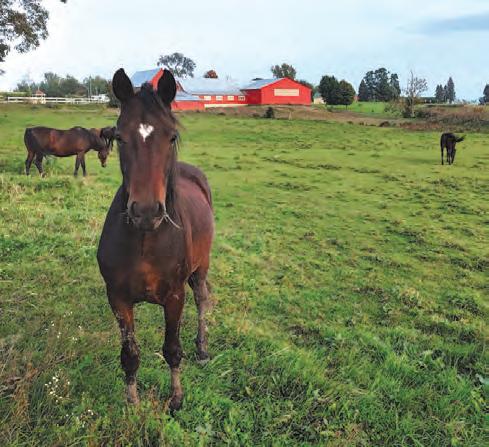
Somebody’s Child will perform at 6 p.m. Friday, Sept. 29, at Frog Level Brewing in Waynesville.

4


Mountain Layers Brewing (Bryson City) will host Shane Meade (indie/ soul) at 6 p.m. Saturday, Sept. 30.
5
Blues/folk singer-songwriter Heidi Holton will perform at 7 p.m. Friday, Sept. 29, in the Speakeasy Bar at the Meadowlark Motel in Maggie Valley.
behind us. Fueling up at the gas station, I asked Sarah if she’d rather drive around the Northern Tier a little bit and enjoy the sunset along the nearby Lake Shore Road, maybe forego dinner in Burlington for another time. She smiled in agreement.
Heading south on the Lake Shore Road, I’d look over from timeto-time at Lake Champlain, the red ball of fire in the sky dropping down countless glistening diamonds of wonder and awe upon the still waters of the North Country. Sarah kept mentioning how beautiful it was. I shook my head in solidarity. It was. And so was this moment, too.
Not long after, we found ourselves standing on the shoreline of the lake at Saint Anne’s Shrine, a place of Catholic worship founded in 1666 as a fort and chapel by the French. About 60 years earlier, famed explorer Samuel de Champlain rolled through the same spot, hunting and fishing and eventually moving on with his exploits.
The sun disappeared behind the silhouettes of the Adirondack Mountains on the horizon. Time to turn around, to head back up the Lake Shore Road, back across the bridge to Rouses Point, back to the farmhouse in the rural countryside outside of Plattsburgh, eventually back down Interstate 87, 88, 81, 26 and 40 to that humble abode apartment in downtown Waynesville. Until next time, eh?
Life is beautiful, grasp for it, y’all.
‘The questions of a thousand dreams, what you do and what you see’Horse farms are a North Country staple. Garret K. Woodward photo

“And it’s funny, I can see the influences in my early stuff — I was reading James Dickey this week, I was reading Ernest Hemingway this week. But, that’s how you learn. You imitate people who are better than you are, then you find your voice.”
Rash kept at it. Chipping away, albeit slowly and steadily. The piles of rejection letters would soon transition to letters of acceptance, published works of all shapes and sizes appearing on bookshelves and magazine racks or in mailboxes of subscribers. The tiny spark grows and increases in momentum.
And as with any craft or worthwhile endeavor, the simple traits of patience, passion and purpose all fit together in due time — your words through the lens of your true voice eventually coming to fruition.

“Writing is still a challenge, but it’s just something that I love. And when it’s going well, there’s nothing better,” Rash said. “Ultimately, [writing] is not a choice. You [feel] you have to do this or your life isn’t complete — it’s a central part of who you are.”
By the numbers, Rash has five volumes of poetry, seven books of short stories and eight novels under his belt. Many of the works have reached national acclaim, with numerous awards and accolades garnered throughout the years and decades.
Other works became films, with the novel “Serena” becoming a major motion picture featuring Hollywood A-listers Jennifer Lawrence and Bradley Cooper. No matter though, what matters most is human connectivity through the ancient act of the written word.
“We’re so fragmented now [as a society] and it’s hugely important to be empathetic,









to imagine and understand lives other than our own.” Rash said. “With [‘The Caretaker’], I want to write about the ability to forgive, that we are capable of noble acts, that people who are different can sometimes rise to occasion to become better people.”

But, regardless of the praise and recognition, what remains is the work itself — what’s been completed, what’s yet to be done — with the novel still the main focus for Rash and his literary aspirations.




“A good novel is one of the last places where complex issues can be dealt with in the depth that they need — it’s not a soundbite, it demands a continued attentiveness,” Rash said. “And I think, in some ways, that maybe novels are more important now than they’ve ever been, because if we get to where we can only take in soundbites, then that’s perilous.”
For Rash, it’s wild, more so surreal, to peer into the rearview mirror and see all those endless pages of words, characters, emotions and themes — his intricate, intrinsic imagination spilling out of his fingertips and across the blank page.





“I kind of view [the writing] as like a patchwork quilt. And it all takes place within a hundred miles of here,” Rash said. “It’s been interesting to try to deal with this region through history. I’ve tried to really hit certain flashpoints of the last 200 years — World War I, Great Depression, all these moments in time.”
As the Parris Distinguished Professor of Appalachian Cultural Studies at WCU, Rash has taught at the school for 20 years, with another chunk of time instructing at a community college before venturing to Cullowhee and greater Western North Carolina.

“I enjoy teaching, I really do,” Rash said. “And one of the great things about this job is even if there are days and weeks where [I’m writing] nothing, I can at least teach a class and feel like I’ve done something [constructive].”




Most recently, Rash quietly celebrated another milestone — his 70th birthday. In essence, it’s just another number. One more candle on the cake. Another lap around the sun. And yet, Rash is taking a moment to take inventory of the road to the here and now — a life genuinely welllived, one still unfolding in real time.
“I feel very fortunate that I’ve been able to do what I loved, [especially] knowing so many people who weren’t,” Rash said in a humbled tone. “Literature is something that’s hugely important for a full life. I think of how much reading has enriched my life and continues to — [and with writing], you hope you can make some converts to that.”--
COME IN!!


Have




a cold beer or wine and walk down memory lane
Rising singer-songwriter and multiinstrumentalist Alma Russ will hit the stage at 6 p.m. Friday, Sept. 29, at Mountain Layers Brewing Company in Bryson City.


Based out of Western North Carolina and with her unique brand of “patchwork music” (country, folk and Appalachian styles pieced together), Russ enjoys playing guitar, banjo and fiddle.
Russ was also a contestant on “American Idol” season 16. Her most recent album, “Fool’s Gold,” was recorded in an abandoned church in the West Texas desert while Russ was on a national tour.
Free and open to the public. To learn more, call 828.538.0115 or go to mountainlayersbrewingcompany.com.
For more information on Russ, go to almarussofficial.com.

Regional Americana act Somebody’s Child will perform at 6 p.m. Friday, Sept. 29, at Frog Level Brewing in Waynesville.

For more than a decade, Ashley Claxton and Cola Williamson have been filling the venues of Western North Carolina with their intrepid sounds. While minimalistic, these Smoky Mountain troubadours seamlessly blend both acoustic

A community jam will be held from 67:30 p.m. Thursday, Oct. 5, at the Marianna Black Library in Bryson City. Anyone with a guitar, banjo, mandolin, fiddle, dulcimer or anything unplugged is invited to join. Singers are also welcomed to join in or you can just stop by and listen. The jam is facilitated by Larry Barnett of the Sawmill Creek Porch Band. The community jams offer a chance for musicians of all ages and levels of ability to share music they have learned over the years or learn old-time mountain songs. The music jams are offered to the public each first and third Thursday of the month — spring, summer, fall.
This program received support from the North Carolina Arts Council, an agency funded by the State of North Carolina and the National Endowment of the Arts. 828.488.3030.
Los Angeles pianist Michael Ragonese and his trio will perform at 7:30 p.m. Wednesday, Oct. 4, in the Community Room at the Jackson County Public Library in Sylva.
The show will also be a release for his second album, “Stracci,” meaning “Rags” in Italian. The record pays tribute to his Italian heritage and childhood nickname, featuring songs that incorporate his roots as a classical pianist. The trio consists of drummer Anthony Fung and bassist Emilio Terranova. The event is free and open to the public. This program is sponsored by the Western Carolina University School of Music.
For more information, please call the library at 828.586.2016 or email jcpladults@fontanalib.org. The Jackson County Public Library is a member of Fontana Regional Library (fontanalib.org).
Popular blues/folk singer-songwriter Heidi Holton will perform at 7 p.m. Friday, Sept. 29, in the Speakeasy Bar at the Meadowlark Motel in Maggie Valley.
and electric melodies with renowned vocal harmonies.
By melding a variety of sounds, which are often described as “alternative folk” or “Americana,” Somebody’s Child offers dynamic, high-energy performances that are calculated, organic and compelling. The show is free and open to the public. 828.454.5664 or froglevelbrewing.com.
Holton is turning heads with her unique take on one of America’s oldest popular musical traditions: the blues. She began young, leaving Murphy to play in rock bands in Athens, Georgia, and New Orleans, Louisiana, before the blues called, and she answered.
She studied under the great Jorma Kaukonen (Jefferson Airplane/Hot Tuna) and then disappeared to Alaska’s arctic interior to perfect her craft. She has then moved back to Murphy and is touring around the country.
The show is free and open to the public. For more information, go to meadowlarkmotel.com/events or call 828.9261717.
• Altered Frequencies (Franklin) will host semi-regular live music on the weekends. 828.342.8014 or alteredfrequencies.net.
• Angry Elk Brewing (Whittier) will host semiregular live music on the weekends. All shows are free and open to the public. 828.497.1015 or facebook.com/angryelkbrewingco.
• Balsam Falls Brewing (Sylva) will host an open mic from 8-10 p.m. every Thursday. Free and open to the public. 828.631.1987 or balsamfallsbrewing.com.
• Blue Ridge Beer Hub (Waynesville) will host a semi-regular acoustic jam with the Main Street NoTones from 7-9 p.m. every first and third Thursday of the month. Free and open to the public. For more information, go to blueridgebeerhub.com.
• Blue Stage (Andrews) will host Jim Avett (singer-songwriter) 7 p.m. Oct. 7. 828.361.2534 or gm@thebluestage.com.
• Boojum Brewing (Waynesville) will host music bingo 7 p.m. Mondays, karaoke at 8:30 p.m. Wednesdays, trivia at 7 p.m., Dan Clare Duo Sept. 30 and Rossdafareye (rock/soul) Oct. 7. All shows begin at 9 p.m. unless otherwise noted. 828.246.0350 or boojumbrewing.com.
• Cowee School Arts & Heritage Center (Franklin) will host semi-regular live music on the weekends. For more information and/or to purchase tickets, go to coweeschool.org/music.
• Currahee Brewing (Franklin) will host “Music Bingo” 7 p.m. Thursdays and Karaoke Sept. 30. All shows begin at 7 p.m. Free and open to the public. 828.634.0078 or curraheebrew.com.
• Farm At Old Edwards (Highlands) will host the “Orchard Sessions” featuring ABC Trio with Tom Herbort Oct. 12. All shows begin at 6 p.m. Tickets start at $25 per person. For tickets, go to oldedwardshospitality.com/orchardsessions.
• Folkmoot Friendship Center (Waynesville) will host semi-regular live music on the weekends. For a full schedule of events and/or to purchase tickets, go to folkmoot.org.
• Fontana Village Resort Wildwood Grill will host semi-regular live music on the weekends. Free and open to the public. 800.849.2258 or fontanavillage.com.
• Friday Night Live (Highlands) will host Johnny Webb Band Sept. 29 and Silly Ridge Oct. 6 at Town Square on Main Street. All shows begin at 6 p.m. Free and open to the public. highlandschamber.org.
• Frog Level Brewing (Waynesville) will host
its weekly “Tuesday Jazz Series” at 5:30 p.m., Tuxedo Junction 5:30 p.m. Sept. 28, Somebody’s Child (Americana/indie) 6 p.m. Sept. 29, Smoky Blue Rain 6 p.m. Sept. 30, Kind Clean Gentlemen (rock/blues) 5:30 p.m. Oct. 3, Seth & Sara (Americana) 5:30 p.m. Oct. 5 and Two Armadillos 4 p.m. Oct. 8. Free and open to the public. 828.454.5664 or froglevelbrewing.com.
• Frog Quarters (Franklin) will host live music from 11 a.m. to 1 p.m. Saturdays. Free and open to the public. Located at 573 East Main St. littletennessee.org or 828.369.8488.
• Happ’s Place (Glenville) will host The Remnants Sept. 30 and Whitewater Heathens Oct. 6. All shows begin at 6 p.m. Free and open to the public. happsplace.com or 828.742.5700.
• Harrah’s Cherokee Casino Resort (Cherokee) will host Loverboy & Night Ranger (classic rock) 8:30 p.m. Sept. 29 and Josh Turner (country) 9:30 p.m. Oct. 6. For a full schedule of events and/or to buy tickets, caesars.com/harrahs-cherokee.
• High Dive (Highlands) will host semi-regular live music on the weekends. highlandsdive.com or 828.526.2200.
• Highlander Mountain House (Highlands) will host a Sunday Bluegrass Residency noon to 2:30 p.m. and semi-regular live music on the weekends. Tickets are $35 per person. For more information and/or to purchase tickets, go to highlandermountainhouse.com.
• Highlands Performing Arts Center will host semi-regular live music on the weekends. For tickets, go to highlandsperformingarts.com.
• Innovation Brewing (Sylva) will host “Trivia Night with Kirk” from 7-9 p.m. every Monday, Open Mic Night every Wednesday and semiregular live music on the weekends. All shows begin at 7 p.m. unless otherwise noted. Free and open to the public. innovation-brewing.com.
• Innovation Station (Dillsboro) will host “Music Bingo” on Wednesdays, Oktoberfest Celebration noon Sept. 23 and semi-regular live music on the weekends. All events begin at 7 p.m. unless otherwise noted. Free and open to the public. innovation-brewing.com.
• Lazy Hiker Brewing (Franklin) will host “Music Bingo” 6 p.m. Tuesdays, trivia 6:30 p.m. Wednesdays, Open Mic 6:30 p.m. Thursdays and semi-regular live music on the weekends. All shows begin at 7 p.m. unless otherwise noted. Free and open to the public. 828.349.2337 or lazyhikerbrewing.com.
• Lazy Hiker Brewing (Sylva) will host trivia 6:30 p.m. Wednesdays, an Old Time Jam 6:30 p.m. Thursdays and semi-regular live music on the weekends. All shows begin at 8
p.m. unless otherwise noted. Free and open to the public. 828.349.2337 or lazyhikerbrewing.com.
• Lineside at Frog Level Brewing (Waynesville) will host Red Clay Revival (Americana/indie) and The Borrowed Band 7 p.m. Oct. 14. Admission is $10 in advance, $12 at the door. For more information and/or to purchase tickets, go to froglevelbrewing.com.
• Meadowlark Motel (Maggie Valley) will host Trivia Thursdays 6:30 p.m., Heidi Holton (blues/folk) Sept. 29, A. Lee Edwards (Americana/indie) Sept. 30, Celtic Road Oct. 6 and Jerry Gaff (singer-songwriter) Oct. 7. All shows begin at 7 p.m. unless otherwise noted. For more information and/or to purchase tickets, go to meadowlarkmotel.com or 828.926.1717.
• Mountain Layers Brewing (Bryson City) will host an “Open Mic with Frank Lee” Wednesdays, Alma Russ (Americana/indie) Sept. 29 and Shane Meade (indie/soul) Sept. 30. All shows begin at 6 p.m. unless otherwise noted. Free and open to the public. 828.538.0115 or mountainlayersbrewingcompany.com.
• Music On The River (Cherokee) will host semi-regular live music on the Water Beetle Stage. For more information, go to visitcherokeenc.com and go to the “Events” tab.
• Nantahala Brewing Outpost (Sylva) will host semi-regular live music on the weekends. All shows begin at 8 p.m. unless otherwise noted. Free and open to the public. 828.641.9797 or nantahalabrewing.com.
• Orchard Coffee (Waynesville) will host semiregular live music on the weekends. 828.246.9264 or orchardcoffeeroasters.com.
• Pickin’ On The Square (Franklin) will host The Remnants (rock/variety) 7 p.m. Oct. 7. All shows are held at the Gazebo in downtown. Free and open to the public. franklinnc.com/pickin-on-the-square.html.
• Quirky Birds Treehouse & Bistro (Dillsboro) will host Open Mic Night at 7 p.m. Tuesdays and semi-regular live music on the weekends. Free and open to the public. 828.586.1717 or facebook.com/quirkybirdstreehouse.
• Rathskeller Coffee Haus & Pub (Franklin) will host semi-regular live music on the weekends. Shows begin at 8 p.m. Free and open to the public. 828.369.6796.
• Salty Dog’s Seafood & Grill (Maggie Valley) will host “Karaoke w/Russell” every Monday and semi-regular live music on the weekends. Free and open to the public. 828.926.9105.
• Santé Wine Bar (Sylva) will host semi-regular live music on the weekends.
828.631.3075 or facebook.com/thewinebarandcellar.
• Saturdays On Pine (Highlands) will host Clay Page (singer-songwriter) Sept. 30 and Outlaw Whiskey (rock/country) Oct. 7 at Kelsey-Hutchinson Park on Pine Street. All shows begin at 6 p.m. Free and open to the public. highlandschamber.org.
• Sauced (Waynesville) will host semi-regular live music on the weekends. Free and open to the public. 828.246.9585 or saucedwnc.com.
• The Scotsman (Waynesville) will host a “Celtic Jam” 2-5 p.m. Sundays, Celtic Road Jam 4 p.m. Sept. 29 and The Jacktown Ramblers (bluegrass) Sept. 30. All shows begin at 8 p.m. unless otherwise noted. Free and open to the public. 828.246.6292 or scotsmanpublic.com.
• SlopeSide Tavern (Sapphire) will host semiregular live music on the weekends. All shows begin at 7 p.m. unless otherwise noted. Free and open to the public. 828.743.8655 or slopesidetavern.com.
• Smoky Mountain Center for the Performing Arts (Franklin) will host “I Am — He Said: Celebrate The Music Of Neil Diamond” Sept. 30. All shows begin at 7:30 p.m. unless otherwise noted. For more information and/or to purchase tickets, go to smokymountainarts.com or 828.524.1598.
• Stecoah Valley Center (Robbinsville) will host semi-regular live music on the weekends. All shows begin at 7:30 p.m. unless otherwise noted. For more information and/or to purchase tickets, call 828.479.3364 or go to stecoahvalleycenter.com.
• Unplugged Pub (Bryson City) will host Karaoke with Lori McDonald Sept. 27, Mountain Gypsy (Americana/indie) Sept. 28, Rock Holler ($5 cover) Sept. 29 and Outlaw Whiskey ($5 cover) Sept. 30. All shows are free and begin at 8 p.m. unless otherwise noted. 828.538.2488.
• Valley Cigar & Wine Co. (Waynesville) will host semi-regular live music on the weekends. Free and open to the public. 828.944.0686 or valleycigarandwineco.com.
• Valley Tavern (Maggie Valley) will host semiregular live music on the weekends. All shows begin at 6 p.m. unless otherwise noted. Free and open to the public. 828.926.7440 or valley-tavern.com.
• Water’n Hole Bar & Grill (Waynesville) will host semi-regular live music on the weekends. All shows begin at 9:30 p.m. 828.456.4750 or facebook.com/waternhole.bar.
• Yonder Community Market (Franklin) will host Amanda Neill (singer-songwriter) 7 p.m. Oct. 21. For more information and/or to purchase tickets, go to eatrealfoodinc.com.
The 15th annual ColorFest will be held from 10 a.m. to 4 p.m. Saturday, Oct. 7, in downtown Dillsboro.
Come spend the day in a walkabout mountain town filled with color and history. Enjoy a day of fun, food, live music, artisan demonstrations, entertainment and shopping.
Dozens of artisans will be displaying authentic Cherokee art, pottery, jewelry, photography, loom beading, handmade soaps, many kinds of needle work, Christmas ornaments, pinecone wreaths, candles, rustic furniture, chair caning, baskets and much more.
ColorFest is free and open to the public. For more information and a full schedule of events, go to visitdillsboro.org.

A beloved long-time Western North Carolina tradition, the 49th annual Mountain Heritage Day, will be held from 10 a.m. to 5 p.m. Saturday, Sept. 30, on the campus of Western Carolina University in Cullowhee.
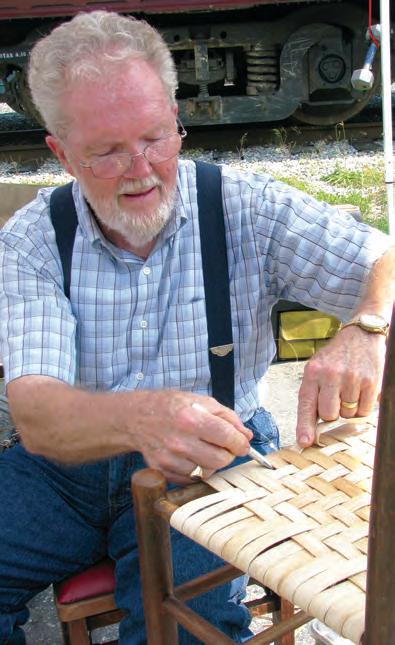
The annual festival of Southern Appalachian traditions and culture is renowned as a showcase of bluegrass, old-time and traditional music, as well as family activities, artisan demonstrations and the region’s finest arts and crafts booths with over 130 vendors. Food will also be available onsite.

The event is free and open to the public. For more information, updates and a full schedule of events/live music, go to mountainheritageday.com.

The Haywood County Historical & Genealogical Society (HCH&GS), in partnership with the Canton Historical Museum and the Town of Canton, will host Plott-Tober Fest Oct. 5-8 at Sorrells Street Park in Canton.
The four-day festival will celebrate the Plott hound, which is the official state dog of North Carolina. The event will also showcase the rich German heritage of Haywood County.

The gathering will feature Plott hound trials and a UKC bench show, as well as German cultural events, children’s activities, traditional German cuisine and musical entertainment.
The festival will be held at Canton’s Sorrells Park, with additional events scheduled at the Museum of Haywood County History at the Shook-Smathers House in Clyde and the Morning Star United Methodist Church in the Dutch Cove community south of Canton.
“We are delighted to offer an event that celebrates this amazing dog breed, developed right here in Haywood County,” said June Smathers-Jolley, board member of the HCH&GS. “[It also pays] tribute to the German immigrants who helped settle this area in the late 1700s — it will be family friendly with something for everyone.”
Various admissions packages are available and can be purchased by visiting the HCH&GS website at nchchgs.

The 111th annual Cherokee Indian Fair will take place Oct. 3-7 at the Acquoni Expo Center site, located at 1501 Acquoni Road in Cherokee.


The Indian Fair Parade kicks off the festivities on Tuesday. Like the typical county fair, Cherokee invites a top-of-the-line carnival to provide amusements all week for the young and old alike. There will also be food vendors onsite.
There will also be community arts and crafts exhibits, stickball competitions, children’s activities and much more. Nationally known entertainers will also hit the stage, with classic rock legends The Romantics performing on Saturday evening.

For more information and a full schedule of events, go to visitcherokeenc.com.
The Cherokee Bonfire & Storytelling will be held from 7-9 p.m. Sundays, Mondays, Wednesdays and Saturdays through Oct. 31 at the Oconaluftee Islands Park in Cherokee. Sit by a bonfire alongside a river and listen to some of Cherokee’s best storytellers. The bonfire is free and open to the public. For more information, call 800.438.1601 or go to visitcherokeenc.com.


The annual corn maze and pumpkin patch will return through Oct. 31 at Darnell Farms in Bryson City. Visit the farm for some old-fashioned fun. Walk through the corn maze ($12 admission), enjoy a hayride ($18 admission) and visit the huge 6-acre pumpkin patch, where you and your family choose your perfect Jack O’ Lantern. Prices vary by size.
There will also be food trucks, farm stand, apples and fall decor onsite. For more information, go to darnellfarms.com.



• “Flights & Bites” will be held starting at 4 p.m. on Thursdays and Fridays at Bosu’s Wine Shop in downtown Waynesville. For more information on upcoming events, wine tastings and special dinners, go to waynesvillewine.com.
• “Take A Flight” with four new wines every Friday and Saturdays at the Bryson City Wine Market. Select from a gourmet selection of charcuterie to enjoy with your wines.
Educational classes and other events are also available. For more information, call 828.538.0420.


• “Uncorked: Wine & Rail Pairing Experience” will be held from 11 a.m. to 3 p.m. on select dates at the Great Smoky Mountains Railroad in Bryson City. Full service all-adult first class car. Wine pairings with a meal, and more. There will also be a special “Beer Train” on select dates. For more information and/or to register, call 800.872.4681 or go to gsmr.com.


A cherished gathering of locals and visitors alike, “Art After Dark” will take place from 6-9 p.m. Friday, Oct. 6, in downtown Waynesville.
Each first Friday of the month (May-December), Main Street transforms into an evening of art, live music, finger foods, beverages and shopping as artisan studios and galleries keep their doors open later for local residents and visitors alike.
The event is free and open to the public. For more information, go to downtownwaynesville.com.
• “Spark of the Eagle Dancer: The Collecting Legacy of Lambert Wilson” will be showcased through Dec. 8 in the Fine Art Museum at Western Carolina University in Cullowhee. The exhibit features over 140 works of contemporary Native American art from the collection of one of Western North Carolina’s most notable art enthusiasts, the late Lambert Wilson. To learn more about the exhibition, please go to arts.wcu.edu/spark. The Fine Art Museum is open from 10 a.m. to 4 p.m. Tuesday through Friday and 10 a.m. to 7 p.m. Thursday.
• “What’s New?” exhibit will showcase new works by members of the Haywood County Arts Council through Nov. 13 at the HCAC in Waynesville. The presentation will focus on new techniques, materials and themes from local and regional artisans. Free and open to the public. haywoodarts.org.
• Gallery Zella (Bryson City) will be hosting an array of artist receptions, exhibits and showcases. The gallery

is open from noon to 5 p.m. Wednesday through Saturday. For more information, go to galleryzella.com or call 517.881.0959.

• Waynesville Photography Club meets at 7 p.m. every third Monday each month on the second floor of the Haywood Regional Health & Fitness Center in Clyde. The club is a nonprofit organization that exists for the enjoyment of photography and the improvement of one’s skills. They welcome photographers of all skill levels to share ideas and images at the monthly meetings. For more information, email waynesvillephotoclub@charter.net or follow them on Facebook: Waynesville Photography Club.
• Farmer’s Market (with artisans) will be held from 9 a.m. to 2 p.m. on Fridays and Saturdays through October at 117 Island St. in Bryson City. Stop by the old barn by the river for local, homegrown produce, as well as baked goods, jellies and preserves, authentic crafts and more. Food truck, picnic tables and live music. Leashed pets are welcome. Outdoor event. 828.488.7857.
There will be a special stage production of “Good Ol’ Girls” at 7:30 p.m. Sept. 29-30, Oct. 5-7 and 2 p.m. Oct. 1 and 8 on the Fangmeyer Stage at the Haywood Arts Regional Theatre in Waynesville.

The presentation is a heartwarming theatrical production that captures the essence of Southern women’s unyielding strength, friendship, and resilience.
The show promises to be a delightful exploration of sisterhood, love and the indomitable spirit of the American South. “Good Ol’ Girls” is a celebration of the bonds that tie Southern women together — unbreakable friendships formed through the highs and lows of life.
Set against the backdrop of a charming Southern community, the play weaves together the stories of strong-willed and diverse women who have weathered life’s storms with grace, humor and courage.
From heartfelt ballads to foot-stomping bluegrass tunes, the show’s music and lyrics will transport audiences to a world where laughter, tears and unforgettable memories unfold.
“Our goal with ‘Good Ol’ Girls’ is to cre-
• Haywood County Arts Council (Waynesville) will offer a wide range of classes, events and activities for artisans, locals and visitors. The HCAC gallery is open seven days a week from 10 a.m. to 5 p.m. and 11 a.m. to 4 p.m. Sundays. For more information and a full schedule, go to haywoodarts.org.
• Jackson County Green Energy Park (Dillsboro) will be offering a slew of classes, events and activities for artisans, locals and visitors. For more information and a full schedule, go to jcgep.org.
• Southwestern Community College Swain Arts Center (Bryson City) will host an array of workshops for adults and kids. For more information on the upcoming classes and/or to sign-up, go to southwesterncc.edu/scclocations/swain-center.
• Dogwood Crafters in Dillsboro will offer a selection of upcoming art classes and workshops. For more information and a full schedule of activities, go to dogwoodcrafters.com/classes or call 828.586.2248.

ate an unforgettable experience that honors the spirit of Southern women,” said Director Sheila Sumpter. “Through laughter, song and heartfelt moments, we aim to showcase the unbreakable bonds formed among these characters and invite the audience to join us on an emotional journey filled with relatable and timeless themes.”
You will get a unique dinner theatre experience as HART offers dinner and dessert selections featuring Woof Street Food Truck and Hit the Pit BBQ on alternating nights. Wine is available by the glass or bottle and beer is available in pitchers as well.
To make reservations, call the HART Box Office at 828.456.6322 or go to harttheatre.org to make reservations online. HART Box Office hours are noon to 5 p.m. Tuesday through Friday.
Some writers put out shoot-em-up thrillers, like Lee Child’s Jack Reacher series. Some of us experience catharsis through such books by watching justice served up close and personal. Other authors like Nicholas Sparks give us stories of love and romance, which can act as a balm for the lonely and the brokenhearted. Some stories, like Gary Paulsen’s “Hatchet,” pit an individual against nature or a fugitive on the run and facing impossible odds, like Louis L’Amour’s “Last of the Breed,” where Air Force
Major Joe Mack takes on both Soviet pursuers and the Siberian wilderness.
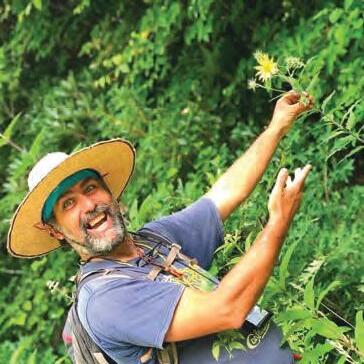
Then there are the writers who explore the mysteries of what it means to be a human being. Do we have a purpose here on earth? What is at work in our lives, bringing us catastrophe or good fortune? Are we guided by a deity? By fate? By chance? Is there life after death? Do we have souls? And if so, what does that mean?
Mitch Albom is one of this band of explorers.

Perhaps best known for “Tuesdays with Morrie” and “The Five People



You’ll Meet in Heaven,” Albom is the author of more than a dozen books, which have sold 40 million copies worldwide. He’s a man of many other talents as well: a talented musician and songwriter, a journalist and a former sports broadcaster. He’s also a philanthropist, donating his time and money to an orphanage in Haiti and to several charities in Detroit.
In preparation for an interview with him — Albom has a new book, “The Little Liar: A Novel,” coming out in November — I recently revisited or read for the first time several of his books. In all of these, he probes the mysteries mentioned above, taking readers to heaven or bringing God to a boat of



people lost at sea. He attempts to lift the veil separating our physical world, this place of joy and sorrow, from the world we cannot see or touch. He is wise enough not to give us answers in this regard, but instead asks us to consider possibilities, to try, if we can and so choose, to lift that veil ourselves and discover what we ourselves believe.
Of all the books I read by, however, the one that really hit home wasn’t a novel but “Have a Little Faith: A True Story” (Hachette Books, Reprint Edition 2011, 272 pages). Here Albom tells the story of two men of God, one an 82-year-old rabbi he has known most of his life, the other a street thug and drug dealer turned Protestant minister.

The story opens when Rabbi Albert Lewis asks Albom to give his eulogy. Puzzled by this request — despite their long acquaintance, they hardly know each other — Albom accepts, but with this proviso, that





was being asked a favor, when in fact I was being given one.”


Henry Covington comes from a radically different background. Growing up poor and black in Harlem, he helps his brother steal cars while still in his early teens. He graduates to drug dealing and armed robbery, serves time in prison for a crime he didn’t commit, again takes up dealing, and ends by giving his life to God while crouching behind some trash cans, shotgun in hand, awaiting an attack by other dealers. Eventually, Covington lands in Detroit, pastoring to the poor and homeless in a falling-down church, which is where he meets Albom.
In these two lives, poles apart in background, status, and religious beliefs, we find similarities. Both are familiar with suffering, the rabbi from a lifetime of counseling those who have endured tragedy and loss, the pastor from his former life of crime and doing harm to others. Well into his narrative, Albom includes a poem which was new to me. Robert Browning Hamilton’s “Along the Road” sums up the journey taken by both men, though on different roads, and is worth repeating here:
I walked a mile with Pleasure: She chattered all the way, But left me none the wiser For all she had to say.




I walked a mile with Sorrow And ne’er a word said she; But oh, the things I learned from her When Sorrow walked with me.
The dust jacket of “Have a Little Faith” states that Albom “finally understands what both men have been teaching all along: the profound comfort of believing in something bigger than yourself.” This observation is true, but also too broad. The events of the last 100 years have shown us what happens when some take such comfort in ideologies like communism or fascism, with their tens of millions of murders and their imprisonment of entire populations. People like Albert Lewis and Henry Covington do in fact take comfort in something bigger than themselves, but it is a comfort drawn from God, not from the schemes and agendas of manifestos and dictators.
“Have a Little Faith” is in the end also about hope, which is in fact the last word of the book. People can change, Lewis and Covington tell us. People can work together and make things better.


he and Lewis meet several times so that when the time comes Albom might give a fair measure of the man. Over the next several years, the two become close, talking of everything from God and death to the mundane details of living. Of this relationship and the requested eulogy, Albom writes, “As is so often the case with faith, I thought I
Redemption, comfort, hope, love: these are the words Lewis, Covington and Albom himself come to live by. These are the desires of the heart.

(Jeff Minick reviews books and has written four of his own: two novels, “Amanda Bell” and “Dust On Their Wings,” and two works of nonfiction, “Learning As I Go” and “Movies Make the Man.” minick0301@gmail.com.)




 BY HOLLY KAYS OUTDOORS EDITOR
BY HOLLY KAYS OUTDOORS EDITOR
More than 600 people from across the nation converged in Cherokee last week for the sixth annual Outdoor Economy Conference, the nation’s leading economic development conference focused on outdoor recreation.
Through three days of programming featuring 82 speakers and a variety of excursions, attendees celebrated the potential of outdoor recreation projects to lift up local economies and improve quality of life — while also discussing how best to guide that growth in a way that safeguards both ecological resources and human communities.
“It’s not just a tourism conference, and it’s not just an industry conference, and it’s not just economic development,” said Amy Allison, director of Made X Mtns Partnership, which organized the conference. “We’re bringing all those people together in the same room with our conservation partners and our parks and land trusts. And that’s how we’re going to move together faster and more effectively.”
The conference started in 2018, when Western Carolina University hosted a one-day event focusing on outdoor economy issues that drew about 250 people from three states. Now organized by Made X Mtns, the conference has become an event of national importance. Attendees hailed from three dozen states.
“I’ve been really so thrilled to meet people and learn from people from literally all over the country,” said Corrina Ruffieux, executive director of the Haywood County Tourism Development Authority. “Even though we all have our own niches and nuances, and mountains are slightly different than beaches, and some places have bears, and some places have elk and some places don’t, there’s still a lot of similarities within the outdoor economy.”
Nationwide, outdoor recreation is big business. According to the most recent numbers from the U.S. Department of Commerce Bureau of Economic Analysis, the industry accounted for 1.9% of the nation’s gross domestic product in 2021, generating $454 billion. North Carolina was on track with the national average, with outdoor recreation accounting for 1.8% of its GDP.
“I think this is a really exciting time because we have power,” Megan Lawson, leader of Headwaters Economics’ research in
outdoor recreation and public lands, said during a presentation. “We have the attention. We know that our economy is a political force, and folks are paying attention to us, both at the local, the state and the federal level.”
In a separate session discussing key policies for advancing the outdoor economy, panelists listed numerous recent wins, pointing out that many of these — including 2020’s historic Great American Outdoor Act — were bipartisan efforts. In 2022, said Tom Bugart, state and local government affairs manager for REI, 33 states passed an “incredible” $4.9 billion in local parks, green space and recreation funding.
North Carolina is also granting heightened recognition to the role parks and trails play in local communities. In an historic 2021 budget, the new Complete the Trails Fund was created and $29.5 million appropriated toward building out the 12 trails that were then recognized as official state trails. The same twoyear budget gave two key conservation programs more than double their previous annual funding.
Also in 2021, only one legislator voted against a bill declaring 2023 “Year of the Trail” in North Carolina. A nonprofit group called the Great State Trails Coalition drove the designation and efforts to celebrate it, recording more than 1,400 Year of the Trail events statewide since January. This year, the coalition will celebrate Great Trails State Day for the first time. The statewide trail celebration is slated for Oct. 21, the third Saturday in October.
“We want to see more different kinds of people feel welcome on trails, but also demonstrate the importance of trails to elected officials so they recognize trails as a very important part of community infrastructure,” said Palmer McIntyre, coordinator of the Great
Trails State Coalition, during a session highlighting Year of the Trail efforts.
Elected officials seem to be paying attention. The 2023-2025 state budget, which the legislature ratified Sept. 22 and Gov. Roy Cooper intends to let pass into law unsigned, creates the new Great Trails State Fund and supplies it with $25 million over two years. To be managed by the Department of Natural and Cultural Resources, the fund will offer grants for construction of new trails and extension of existing ones around the state. The Complete the Trails Fund will receive an additional $5 million, with an additional $24.9 million appropriated for specific trail and greenway projects across the state.
“I can’t even say how thrilling it is to get this fund in the next General Assembly session,” McIntyre said. “So we’re so excited … our legislature is tuned in to trails right now. They are seeing that that is a worthy investment.”
The argument in favor of trails and other outdoor recreation amenities spans the gamut from economic returns to improved mental and physical health to incentivizing land conservation. A 2018 study from N.C. State’s Institute for Transportation Research and Education found that every dollar invested in trails returns $1.72 annually in local business revenue, sales tax and health and transportation benefits.
But the conference also explored the caveats around trail-building.
“My first question for any trail project is, ‘Why?’ followed by, ‘How are you going to take care of it?’” said Shane Prisby, trails program director for Foothills Conservancy of
North Carolina. “I know there’s a lot of buzz and excitement around recreation for economic development, and it is certainly a wonderful aspect of it, but it’s a forever cost. These are generational projects that we’re doing, and that takes a generational level of thought.”
Prisby joined Owen Carson, botanist and senior ecologist for Asheville-based Equinox Environmental Consultation and Design, and Andrea Leslie, mountain habitat conservation coordinator for the N.C. Wildlife Resources Commission, in a session titled “Think Before you Dig: Ecological considerations for recreation planning.”
“We felt like it’s a really important concept to underline the fact that the ecology of this place here supports all of the wonderful experiences we have in outdoor recreation, and therefore it makes sense to think before you dig,” Carson said.
He gave several examples of Equinox projects in which careful planning resulted in a project that balanced human needs with ecological integrity. Meanwhile, Leslie spoke to a paradox that’s become increasingly apparent as visitation continues rising at WNC parks and public lands.
“People want to be outside,” she said. “They want to appreciate the natural world. How do we balance the need, an increasing need, of people to be on the landscape with the needs of the natural environment?”
When designing trails, it’s important to build them right, minimizing impacts like erosion, and to choose routes that avoid ecologically sensitive areas. When welcoming visitors, it’s important to educate them in responsible enjoyment of the place.
But in some cases, Leslie said, “The concept of ‘leave no trace’ might not be enough. Maybe it’s, ‘stay away.’”
Leslie spoke in support of encouraging outdoor recreation activities that are light on the land, pointing specifically to the new Blue Ridge Snorkel Trail that encourages people to check out the native fish at 10 sites in Western North Carolina. But she also questioned common perceptions about what constitutes overcrowding — and whether it’s always a bad thing. For example, she said, Bent Creek Experimental Forest near Asheville is often discussed as an instance of overuse.
“It’s a real focus for recreational use, and some folks would argue that it’s too high. It’s loved to death,” she said. “But I argue that that’s awesome, because we’re focusing so much impact there so that it relieves that same impact spread out over other natural areas.”
Human communities also run the risk of being loved to death — or, at least, to rapid and unwelcome change — when their outdoor recreation economy efforts are successful. In a session titled “Avoiding the Amenity Trap,” Lawson and Chris Estes, codirector of The Aspen Institute’s
Community Strategies Group, explored this phenomenon — and strategies for avoiding it.

“Everything we do has a ripple effect, and so we have to be thinking about how bringing people in does affect the land that we’re on, the people in the communities that we’re visiting and traveling in and recreating in,” Allison said. “So it is about outdoor recreation and the economy and growth and opportunities and supporting our businesses, but we’ve also got to make sure that our communities are intentional about the way they’re going about outdoor recreation and tourism.”
The amenity trap is not a new phenomenon, Lawson said, but the pandemic accentuated it. Prior to 2020, rural counties without recreation amenities were losing population, while rural counties with such amenities were gaining about two people per 1,000 residents each year. Since 2020, that number has grown to 10 people per 1,000 residents.

“That might not sound like a lot, but it’s a five-fold increase, so places that were already growing quickly, it really just accelerated and threw gasoline on the fire,” she said.
help the situation. But when it comes to reducing the ratio of short-term to long-term rentals, both “carrot” and “stick” solutions can be used — and there are some “really interesting programs on the carrot side of things,” Lawson said.
Breckenridge, Colorado, has started a program that pays property owners cash for converting from short-term to long-term rentals, she said. The town spent $300,000 on that program in the first year, less than the cost of building a single unit of affordable housing in that community. It’s not a long-term solution, Lawson said, but effective in a crisis.
Nearby Vail, Colorado, launched a program aimed at the analogous issue of lacking home ownership among Vail residents. Using a tactic that is similar in concept to a conservation easement, the town paid homeowners who were willing to place a deed restriction on their property requiring that, should the home be sold, it must go to a local buyer.
“It’s funded through the general fund in this community, because they recognize this is a really big problem, and they’re throwing some real money behind it,” she said.

Western North Carolina’s diversity of tree species offer a variety of fall colors.
Take a free guided tour of fall leaves at the Highlands Nature Center in Highlands at 4 p.m. any Friday or Saturday throughout October.
During the Autumn Amble tours, knowledgeable guides will lead a scenic adventure through the Highlands Botanical Garden to share the secrets of the changing leaves, local flora and fauna and the magic of autumn like never before.

No registration necessary. Tours are weather-dependent. For more information visit highlandsbiological.org.
Registration for youth basketball with the Jackson County Parks and Recreation Department is open through Saturday, Sept. 30.
The league offers divisions for second and third grade, fourth and fifth grade, and sixth through eighth grades. Practices start in November with games on Saturdays in December and January. Cost is $55 per player.
Some teams will practice at the Cullowhee Recreation Center and some teams will practice at the Cashiers/Glenville Recreation Center. Register online at rec.jacksonnc.org or in person at the recreation center where you want practices to take place.

This results in challenges that are becoming apparent across Western North Carolina related to the cost and availability of housing and pressure on public resources like roads, water systems and law enforcement. During their presentation, Lawson and Estes presented a buffet of potential solutions that communities might adopt to address these challenges — because measures like moratoriums on building permits aimed at halting growth simply don’t work, they said.
Housing is a particularly sticky point, because recreation destinations need affordable homes for locals but also accommodations for tourists. Such areas often have limited buildable land and a limited labor supply, causing the market to favor wealthier landowners over median-wage locals. Regulatory changes to allow for smaller dwellings and increased density, and use of less labor-intensive modular homes, can
Lawson also threw out solutions for problems related to infrastructure, finances and natural disasters.
“Rural places, and I would say most of Western North Carolina, has this history of thinking from a deficit framework,” Estes said. “What are we missing? What don’t we have? And that calls us to think about how can we get other people to come here, to create jobs or to spend tourist money?”
It’s time to change that paradigm, he said, and instead use the outdoor recreation economy as a tool to build local ownership and local control of the community’s destiny.
“It’s something that we can all be thinking about,” he said. “How are we setting a narrative about how people think about our communities, particularly in the outdoor rec world, that is not just an extractive playground?”
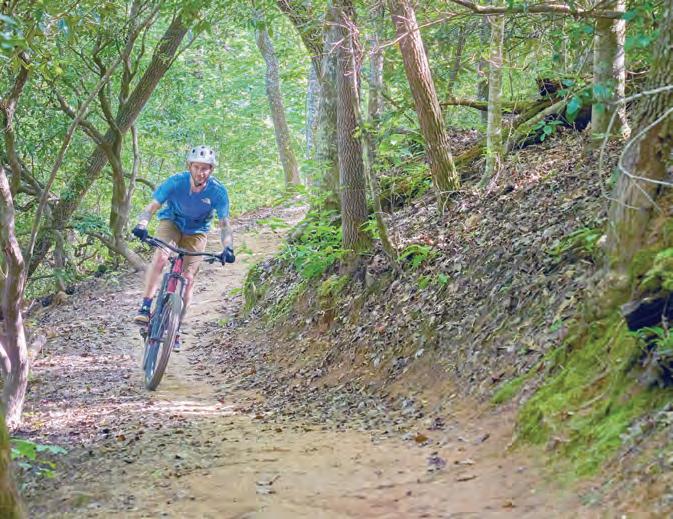

The zebra mussel, a harmful invasive aquatic species, has been confirmed in the wild for the first time in North Carolina.
The N.C. Wildlife Resources Commission investigated and confirmed a report of zebra mussels living in a quarry in Iredell County on Thursday, Sept. 21, with help from U.S. Fish and Wildlife Service scuba divers. The Wildlife Commission believes the mussels are contained to the quarry and is working on options for treatment while continuing its investigation.
These prolific mussels can quickly take over and impact other aquatic wildlife by disrupting the food chain and changing water
Celebrate the Water New Year with a guided hike through Panthertown Valley 9 a.m. to 1 p.m. Saturday, Sept. 30.
A little-known holiday celebrated annually by hydrologists and recognized by the U.S. Geological Survey, the Water New Year was created in 1911 to record hydrological movement and flow outside of the limits of the calendar year. By starting the
chemistry, and they’re capable of clogging public drinking and wastewater systems, as well as damaging recreational equipment.
Adult mussels move to new water bodies by attaching to equipment like boats and dock lifts, and microscopic larvae can be transported through gear like bait buckets and diving equipment.
Zebra mussels were previously found living on moss balls sold in pet stores in March 2021.
To prevent the spread of invasive species, clean equipment of aquatic plants, animals and mud; drain water from boats, live wells, bait buckets and other equipment; dry all equipment thoroughly; and never move fish, plants or other organisms from one body of water to another.
To report suspected zebra mussels, call 828.558.6013.
New Year on Oct. 1, scientists can track the impacts of precipitation in the fall and winter more easily. This day also marks the beginning of ground water refill as vegetation goes into a dormant state for the cold season.
Friends of Panthertown will celebrate with a hike seeking out the headwaters of the Tuckasegee River and beautiful waterfalls, while talking about how important water is in WNC and the world.
Learn more or register at panthertown.org/events.
The 24th annual Mountains to Coast bike ride will tour scenic North Carolina between Banner Elk and Emerald Isle Sunday, Oct. 1, to Saturday, Oct. 7, with Sept. 30 serving as check-in day. With beautiful tourist stops along scenic back roads, this ride from Cycle North Carolina is the highlight of the year for many cyclists from across the nation. Roughly 850 cyclists from 41 states, Washington, D.C. and six countries will make the trek, ranging in age from 10 to 86 years old. On average, riders will bike 65 miles per day.
The Cycle North Carolina “Mountains to Coast” tour is the state’s only fully supported ride. For more information visit cyclenorthcarolina.org.
The first ever Hispanic Heritage Fest will bring the colors, flavors and rhythms of Latin America to the Cradle of Forestry in America, located in the Pisgah
Take a hunters education course at 9 a.m. Saturday, Oct. 7, at the Jackson County Recreation Complex in Cullowhee.

The free course is open to ages 12 and up and limited to 15 participants. To register, visit register-ed.com/programs.

National Forest near Brevard, 10 a.m. to 5 p.m. Sunday, Oct. 1.
The schedule includes guided hiking and biking, dancing, music, a Zumba class and a concert from Nathaniel Aguilar y Co. Food options representing Colombia, Mexico and Argentina will be available.
Learn more at gofindoutdoors.org/events.
The WNC Sierra Club will host a presentation focusing on the benefits of electric vehicles at 7 p.m. Wednesday, Oct. 4, in room 102 of the Reuter Center at UNC Asheville.
David Erb, who spent four decades in automotive engineering focused on energy and emissions, will give his perspective on reasons to choose electric vehicles and respond to criticisms often leveled against them. Ample time will be allotted for questions and discussion.
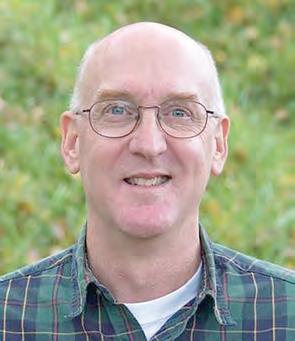
Dave and his wife, Beth, live in a totally electric, solar-powered house and have not bought gas in over four years, despite driving to Florida, Minnesota, the Upper Peninsula of Michigan, California and numerous other locations during that time.


The presentation will be livestreamed on Zoom. For more information, including Zoom registration, visit wncsierraclub.org. Contact the club’s chair Judy Mattox at judymattox15@gmail.com.



Delayed Harvest Trout Waters regulations will go into effect in Western North Carolina on Sunday, Oct. 1. Under the regulations, no trout can be harvested or possessed in these waters between Oct. 1 and a half hour after sunset on June 1, 2024. Anglers may not possess any natural bait and
Trout fishing topics good for beginners and seasoned anglers alike will be discussed during Trout Unlimited Sylva’s monthly dinner gathering 6:15-8 p.m. Tuesday, Oct. 10, at the United Methodist Church on Jackson Avenue in Sylva.

may use only artificial lures with one single hook. Lures may not contain or be treated with any substance that attracts fish by the sense of smell.

The N.C. Wildlife Resources Commission stocks these waters from fall through spring with high densities of trout to increase anglers’ chances of catching fish. Delayed Harvest Trout Waters are posted with diamondshaped, black-and-white signs. For a list of Delayed Harvest waters, visit www.ncwildlife.org/Learning/Species/F ish/Trout/TroutFishing.aspx.
Non-members are encouraged to attend to find fishing buddies along with fishing reports, gear raffles and status reports on various Trout Unlimited projects. Members who attend are encouraged to bring food to share.

For more information, contact tu.sylva.373@gmail.com.
Learn how to raft guide with a three-day clinic Friday, Oct. 6, through Sunday, Oct. 8, at the Nantahala Outdoor Center in Swain County.
The curriculum is suited for everyone from beginners to experienced paddlers seeking to solidify their skill and confidence on the river. Professional instructors from NOC will meet participants at their skill level and ensure they leave with newfound knowledge, technique and confidence. Cost starts at $550. Participants must be at least 18 years old. Learn more or register at noc.com/courses/learn-to-raft-guide.
Hear the spectacular story of a Haywood County native’s expeditions to the world’s highest mountain peaks at 7 p.m. Friday, Oct. 6, at First United Methodist Church in Waynesville.

Baker Perry holds a Ph.D. and is a National Geographic Explorer, Appalachian State University professor and internationally respected climate scientist who has climbed more than 20 summits around the world, including Mt. Everest.

His research has focused on the impacts


of climate change on the highest mountains in the world, including the critical role of moisture and intense sunshine on the behavior of high-altitude glaciers. In the world’s highest mountains, the vast Hindu KushKarakoram-Himalaya region, increased melting of the numerous glaciers increases the risk of catastrophic flooding in the short term and threatens the water supply of over 1.5 billion people in the longer term. A similar situation exists in the South American countries that depend on the glaciers of the Andes.
This free presentation is sponsored by Environmental Action Community of Western North Carolina, with donations appreciated. Learn more at eacwnc.org.
A South Carolina woman fell to her death from a steep cliff along the Blue Ridge Parkway Saturday, Sept. 23.



The National Park Service received the report at 12:15 p.m., and rangers arrived on scene at the Glassmine Falls Overlook at milepost 361, north of Black Mountain. They confirmed that Nancy Sampson, 61, of Greer, South Carolina, had succumbed to injuries from her fall. Her body was recovered 150 feet below the overlook by rescuers from Reems Creek Fire Department, with assistance from Mt. Mitchell State Park Rangers and a Trauma Intervention Program of Western North Carolina volunteer.

Canton native Betty Y. Henderson earned a bronze medal at the National Senior Games held this summer in Pittsburgh, Pennsylvania.
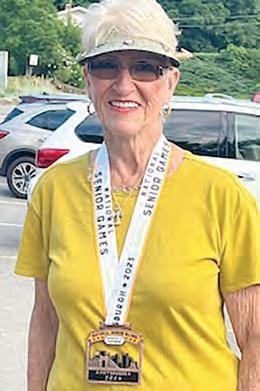
Henderson, the only person from North Carolina in the 80-84 age group, received her medal in women’s golf. She competed in the Haywood County Senior Games Golf Tournament at Springdale Country Club in April and qualified for the North Carolina Senior Games in Pinehurst.
Henderson also won the Annual Lake Junaluska Lady Laker’s Handicap Tournament. Second place was Annette Husson and Spanky Wilson was third.
Betty was runner-up by one stroke in the Lady Laker’s Club Championship 2-day tournament on Aug. 18 and 25 at Lake Junaluska. The Club Champion was Kim Miller and third place was Marti Gibson.
For more information on the Lady Lakers of Lake Junaluska Golf League, call 828.456.5777.


her bronze medal. Donated photo

• The Jackson Arts Market takes place from 1-5 p.m. every Saturday at 533 West Main St. in Sylva with live music and an array of local artists.
• Cowee School Farmer's Market is held Wednesdays from 3-6 p.m., at 51 Cowee School Drive in Franklin. The market has produce, plant starts, eggs, baked goods, flowers, food trucks and music. For more information or for an application, visit www.coweeschool.org or call 828.369.4080.
• Jackson County NAACP will host a Salad Supper Fundraiser “Salvaging the Beloved Community from the Nightmare of the Lost Cause” from 5:30-7:30 p.m. Saturday, Sept. 30. There will be a silent auction and guest speaker Dr. Myron Jackson. All funds will benefit the Leroy Jackson Memorial Scholarship. For more information or to register visit jacksonncnaacp.org/events or contact jcnaacp54ab@gmail.com.
• REACH of Haywood County invites the public to a free event, Creating a Trauma Informed Community Response to Domestic Violence, to be held 9 a.m. to 4:30 p.m. Oct. 5, at Charles M. Beall Auditorium in Cylde, with onsite registration 8-8:40 a.m. Visit reachofhaywood.org or call 828.456.7898 for more information.
• Mountain Area pregnancy Services and the WIC Breastfeeding Peer Counselor work together to provide a casual support group for prenatal and breastfeeding individuals from 1-2 p.m. on Tuesdays at Mountain Area Pregnancy Services, 177 N Main St. Waynesville, NC. All are welcome, registration is recommended. For more information, please call 828.558.4550.
• The Western Carolina Cribbage Club meets every Monday at 6 p.m. An eclectic group of young and old, male and female. The group supplies boards, cards, pegs and are always willing to help those still learning the finer points of the game. Contact kei3ph@bellsouth.net for more information.
• The Canton Branch of the Haywood County Public Library Creative Writing Group meets 10:30 a.m. to noon on the second and fourth Tuesday of the month. For more information, email Jennifer at jennifer.stuart@haywoodcountync.gov or call 828.356.2561.
• Sylva Writers Group meets Wednesday mornings at City Lights Books. If interested contact sylvawriters@gmail.com.
• A Novel Escape Book Club takes place at 6:30 p.m. on the first Tuesday of every month at the Novel Escape Bookstore (60 E Main St, Franklin). Every other month one book is selected for discussion. On alternate months the meeting is round-table discussion in which participants share what they’ve read lately. For more information call the bookstore at 828.369.9059 or visit anovelescapefranklin.wordpress.com.
• Thomas Rain Crowe will read from his new book of poetry “Painting from the Palette of Love: The Mystical Poetry of Kabir” during an event 1-3 p.m. Saturday, Sept. 30, at Blue Ridge Books in Waynesville. For more information visit blueridgebooksnc.com or call
n All phone numbers area code 828 unless otherwise noted.
n To have your item listed email to calendar@smokymountainnews.com
828.456.6000.
• Ron Rash will speak on his new book “The Caretaker” during an event at 7 p.m. Tuesday, Oct. 10, in the Fangmeyer at Hart theater in Waynesville. Hosted by Blue Ridge Books, tickets are $10. Profits will be donated to the Pigeon Center.
• The Arts Council of Macon County and the Macon County Library are partnering to offer Traditional Mountain Clogging with Cheryl Renfro at 3:30 p.m. Thursday, Oct. 12, at the Macon County Library. For more information call 828.524.3600 or visit fontanalib.org.
• The Arts Council of Macon County and the Macon County Library are partnering to offer Cherokee Dance with Bill Dyar at 3:30 p.m. Thursday, Nov. 9, at the Macon County Library. For more information call 828.524.3600 or visit fontanalib.org.
• The Jackson County Public Library in Sylva will host a kids’ program about moon exploration on Wednesdays at 3 p.m. Randi Neff will lead these activities focused on NASA’s Artemis program, with aims to one day establish a base on the Moon. Co-sponsored by Friends of the Jackson County Public Library. For more information call 828.586.2016.
• Creative Writing Club will take place at 3:30 p.m. on the fourth Wednesday of every month at the Macon County Public Library. The writing club is intended for ages 8-12. For more information visit fontanalib.org or call 828.524.3600.
• Move and Groove Storytime takes place 10:30-11 a.m. every Thursday, at the Canton branch of the Haywood County Public Library. Exciting, interactive music and movement story time ideal for children 2-6 years old. For more information contact Ashlyn at ashlyn.godleski@haywoodcountync.gov or at 828.356.2567.
• Mother Goose Storytime takes place 10:30-11 a.m. every Wednesday, at the Waynesville branch of the Haywood County Public Library. Ideal for children from birth to 2 years old. For more information, contact Lisa at lisa.hartzell@haywoodcountync.gov or call 828.356.2511.
• Wiggle Worms Storytime takes place 10:30-11 a.m. every Tuesday, at the Waynesville branch of the Haywood County Public Library. Ideal for children 2-6 years old. For more information contact Lisa at lisa.hartzell@haywoodcountync.gov or call 828.356.2511.
• Next Chapter Book Club Haywood is a fun, energetic and highly interactive book club, ideal for individuals with intellectual and developmental disabilities. The group meets every second and fourth Monday of the month. For more information, email Jennifer at jennifer.stuart@haywoodcountync.gov or call 828.356.2561.
• Toddler’s Rock takes place at 10 a.m. every Monday at the Macon County Library. Get ready to rock with songs, books, rhymes and playing with instruments. For more information visit fontanalib.org or call 828.524.3600.
• Culture Talk takes place at 2 p.m. on the first Wednesday of every month at the Macon County Public Library. Travel the world from inside your library. This event features guest speakers and food sampling from the location being discussed. For more information visit fontanalib.org or call 828.524.3600.
• Art afternoon takes place at 3:30 p.m. on the first Thursday of each month at the Macon County Public Library. For more information visit fontanalib.org or call 828.524.3600.
• The Haywood County Fair will take place Thursday, Sept. 28 through Sunday, Oct. 1. Daily admission is $8 for adults and $6 for kids 6-12, with kids under five entering free. For a full schedule, or for information about entering the fair, visit haywoodcountyfair.com.
• Plott-tober Fest will run Oct. 5-8 and will feature Plott hound trials and a UKC Bench Show as well as German cultural events, children’s activities, traditional German cuisine and musical entertainment. The festival will be held at Canton’s Sorrells Park with additional events scheduled at the Museum of Haywood County History at the Shook-Smathers House in Clyde as well as Morning Star United Methodist Church in the Dutch Cove community of South Canton. For more information or admission visit nchchgs.org.
• “ColorFest,” Dillsboro’s 15th annual Fine Arts & Crafts Fair will hit the streets 10 a.m. to 4 p.m. Saturday, Oct. 7, in historic Dillsboro. There will be local artisans and vendors, clogging, live music, food and more. For more information call Brenda Anders at Dogwood Crafters at 828.506.8331.
• Stecoah’s annual Harvest Festival will take place 6-8 p.m. Friday, Oct. 20, and 10 a.m. to 6 p.m. Saturday, Oct. 21. The festival celebrates all things fall with music, food, art and crafts vendors, country fair, quilt show, artisan demonstrations and more. For more information visit stecoahvalleycenter.com.
• Paint and Sip at Waynesville Art School will be held every Thursday, Friday and Saturday from 7-9:30 p.m. To learn more and register call 828.246.9869 or visit PaintAndSipWaynesville.com/upcoming-events. Registration is required, $45.
• Mountain Makers Craft Market will be held from noon to 4 p.m. the first Sunday of each month at 308 North Haywood St. in downtown Waynesville. Over two dozen artisans selling handmade and vintage goods. Special events will be held when scheduled. mountainmakersmarket.com.
• A free wine tasting will be held from 6-8 p.m. every Thursday and 2-5 p.m. every Saturday at The Wine Bar & Cellar in Sylva. 828.631.3075.
• Cooking classes take place at the McKinley Edwards Inn from 6-8:30 p.m. on Thursday nights. To reserve your spot call 828.488.9626.
• There will be a glassblowing class to make pumpkins starting at 10 a.m. Saturday, Oct. 7, at the Jackson County Green Energy Park. No experience necessary, each spot costs $65, due at registration. For more information, or to register, contact the CEP at 828.631.0271.
• Wired Wednesday, one-on-one technology help is available at 3-5 p.m. every Wednesday at the Canton Branch of the Haywood County Library. For more information or to register, call 828.648.2924.
• Uptown Gallery, 30 East Main St. Franklin, will be offering Children’s Art Classes Wednesdays afternoons. Adult workshops in watercolor, acrylic paint pouring, encaustic and glass fusing are also offered. Free paint-
n
n Art gallery events and openings
n Complete listings of recreational offerings at health and fitness centers
n Civic and social club gatherings
ing is available 10 a.m. to 3 p.m. every Monday in the classroom. A membership meeting takes place on the second Sunday of the month at 3 p.m. All are welcome. Call 828.349.4607 for more information.
• “Thursday Painters” group will be held from 10 a.m. to 3 p.m. on Thursdays at The Uptown Gallery in Franklin. Free and open to the public. All skill levels and mediums are welcome. Participants are responsible for their own project and a bag lunch. 828.349.4607 or pm14034@yahoo.com.
• Haywood County Master Gardener Volunteers will be at the Haywood County Fair from noon to 6 p.m. Saturday, Sept. 30 and Sunday, Oct. 1. There will be information available about a wide variety of gardening topics and gardeners will be ready to answer questions.
• Celebrate the Water New Year with a guided hike through Panthertown Valley 9 a.m. to 1 p.m. Saturday, Sept. 30. Learn more or register at panthertown.org/events.
• Take a free guided tour of fall leaves at the Highlands Nature Center in Highlands at 4 p.m. any Friday or Saturday throughout October. No registration necessary. Tours are weather-dependent. For more information visit highlandsbiological.org.
• The first ever Hispanic Heritage Fest will bring the colors, flavors and rhythms of Latin America to the Cradle of Forestry in America, located in the Pisgah National Forest near Brevard, 10 a.m. to 5 p.m. Sunday, Oct. 1. Learn more at gofindoutdoors.org/events.
• Hear the spectacular story of a Haywood County native’s expeditions to the world’s highest mountain peaks at 7 p.m. Friday, Oct. 6, at First United Methodist Church in Waynesville. This free presentation is sponsored by Environmental Action Community of Western North Carolina, with donations appreciated. Learn more at eacwnc.org.
• Learn how to raft guide with a three-day clinic Friday, Oct. 6, through Sunday, Oct. 8, at the Nantahala Outdoor Center in Swain County. Cost starts at $550. Participants must be at least 18 years old. Learn more or register at noc.com/courses/learn-toraft-guide.
• Take a hunters education course at 9 a.m. Saturday, Oct. 7, at the Jackson County Recreation Complex in Cullowhee. The free course is open to ages 12 and up and is limited to 15 participants. To register, visit register-ed.com/programs.
• Trout Unlimited Sylva’s monthly dinner gathering will be held 6:15-8 p.m. Tuesday, Oct. 10, at the United Methodist Church on Jackson Avenue in Sylva. For more information, contact tu.sylva.373@gmail.com.
ED!
The Smoky Mountain News Marketplace has a distribution of 16,000 copies across 500 locations in Haywood, Jackson, Macon and Swain counties, including the Qualla Boundary and west Buncombe County. Visit www.wncmarketplace.com to place your ad!
Rates:
• $15 — Classified ads that are 25 words, 25¢ per word after.
• Free — Lost or found pet ads.
• $6 — Residential yard sale ads.*
• $1 — Yard Sale Rain Insurance
Yard sale rained out? Call us by 10a.m. Monday for your ad to run again FREE
• $375 — Statewide classifieds run in 170 participating newspapers with 1.1+ million circulation. (Limit 25 words or less)
• Boost Online — Have your ad featured at top of category online $4
• Boost in Print
• Add Photo $6
• Bold ad $2
• Yellow, Green, Pink or Blue Highlight $4
• Border $4
Note: Highlighted ads automatically generate a border so if you’re placing an ad online and select a highlight color, the “add border” feature will not be available on the screen.
Note: Yard sale ads require an address. This location will be displayed on a map on www.wncmarketplace.com

p: 828.452.4251 · f:828.452.3585
classads@smokymountainnews.com www.wncmarketplace.com
NOTICE OF ADMINISTRATION
Case No.2023 E 000575 Rachel N Ray, having
Billy Ray Gevedon Dec 13 2023 Administrator
11 Meadow Dr Horse Shoe, NC 28742
NOTICE OF ADMINISTRATION
Case No.2023 E 000497
Katherine Ann Kelley Dec 13 2023 Administrator
590 Auburn Rd Waynesville, NC 28786
NOTICE OF ADMINISTRATION
Case No.2023E 000555
Sue Queen Hall Dec 13 2023
1993 CADILLAC DEVILLE
MECHANICS, BODY AND PAINT TECHS!
authorized by the Laws
assets belonging to the estate.
192 Pickle Springs Rd
Announcements
WALK TO END ALZHEIMER’S
1985 PONTIAC GRAND PRIX

NEW AUTHORS WANT-
DEPRESSION GLASS
GLASS FRONT SHOWCASE
Home Goods
PREPARE FOR POWER OUTAGES TODAY
HOUND MIX, BROWN/ BLACK/WHITE — JUDITH 6 yr-old girl;
hikes and car rides, and playing with other dogs. Asheville Humane Society (828) 761-2001 adoptions@ ashevillehumane.org
“WORKING CATS”
Asheville Humane Society has cats available who arehouse, etc. Fully vaccinated and spayed/ neutered. (828) 761-2001 adoptions@ ashevillehumane.org
PUBLISHER’S NOTICE

Jerry Powell
Cell: 828.508.2002 jpowell@beverly-hanks.com

74 N. Main St., Waynesville 828.452.5809
Better Homes and Gardens Real Estate - Heritage
• Carolyn Lauter - carolyn@bhgheritage.com
Allen Tate/Beverly-Hanks Realtors - beverly-hanks.com
• Billie Green - bgreen@allentate.com
• Brian K. Noland - bknoland@allentate.com
• Anne Page - apage@allentate.com
• Jerry Powell - jpowell@allentate.com
• Catherine Proben - cproben@allentate.com

• Ellen Sither - esither@allentate.com


• Karen Hollingsed- khollingsed@allentate.com
• John Keith - jkeith@allentate.com
• Randall Rogers - rrogers@allentate.com
• Susan Hooper - shooper@allentate.com
• Hunter Wyman - hwyman@allentate.com
•Julie Lapkoff - julie.lapkoff@allentate.com
•Darrin Graves - darrin.graves@allentate.com
ERA Sunburst Realty - sunburstrealty.com
Medical
ATTENTION OXYGEN THERAPY USERS!
DENTAL INSURANCE
Recreational Vehicles
DIAGNOSED WITH LUNG CANCER?
250 KAWASAKI NINJA 2007
•Rick Border - sunburstrealty.com
• Randy Flanigan - 706-207-9436
Keller Williams Realty - kellerwilliamswaynesville.com
•The Morris Team - www.themorristeamnc.com
• Ron Breese - ronbreese.com
• Landen Stevenson- landen@landenkstevenson.com
Lakeshore Realty
• Phyllis Robinson - lakeshore@lakejunaluska.com
Mountain Dreams Realty- maggievalleyhomesales.com
• Lyndia Massey- buyfromlyndia@yahoo.com
Mountain Creek Real Estate
• Ron Rosendahl - 828-593-8700
McGovern Real Estate & Property Management

• Bruce McGovern - shamrock13.com
RE/MAX Executive - remax-waynesvillenc.com remax-maggievalleync.com
• The Real Team - TheRealTeamNC.com
• Dan Womack - womackdan@aol.com
•Mary Hansen - mwhansen@charter.net
• Billy Case- billyncase@gmail.com
Rob Roland Realty
• Rob Roland - 828-400-1923


Smoky Mountain Retreat Realty
• Tom Johnson - tomsj7@gmail.com
• Sherell Johnson - Sherellwj@aol.com
DENTAL INSURANCE
TIMESHARE CANCELLATION EXPERTS.
Here’s How It Works: Sudoku puzzles are formatted as a 9x9 grid, broken down into nine 3x3 boxes. To solve a sudoku, the numbers 1 through 9 must fill each row, column and box. Each number can appear only once in each row, column and box. You can figure out the order in which the numbers will appear by using the numeric clues already provided in the boxes. The more numbers you name, the easier it gets to solve the puzzle!


REPLACE
DON’T
BEHIND ON YOUR MORTGAGE PAYMENTS?







